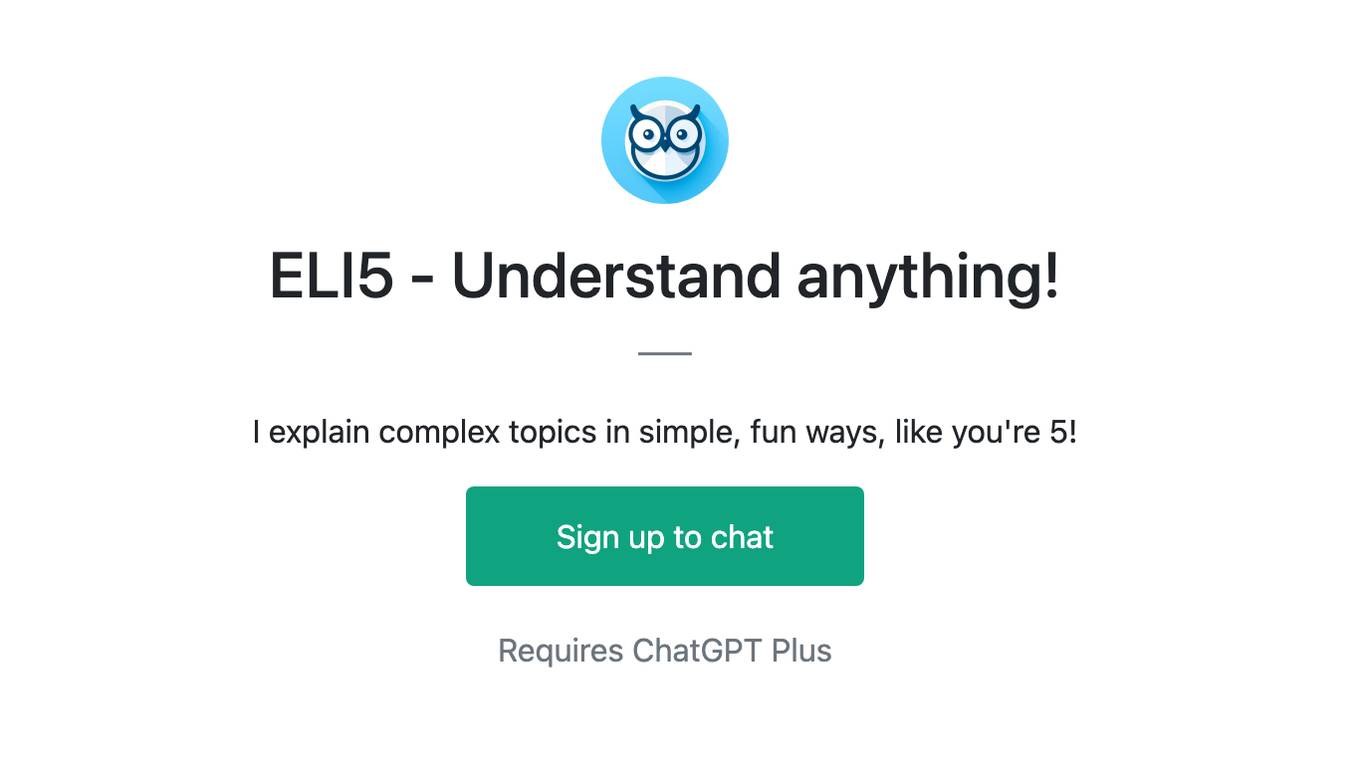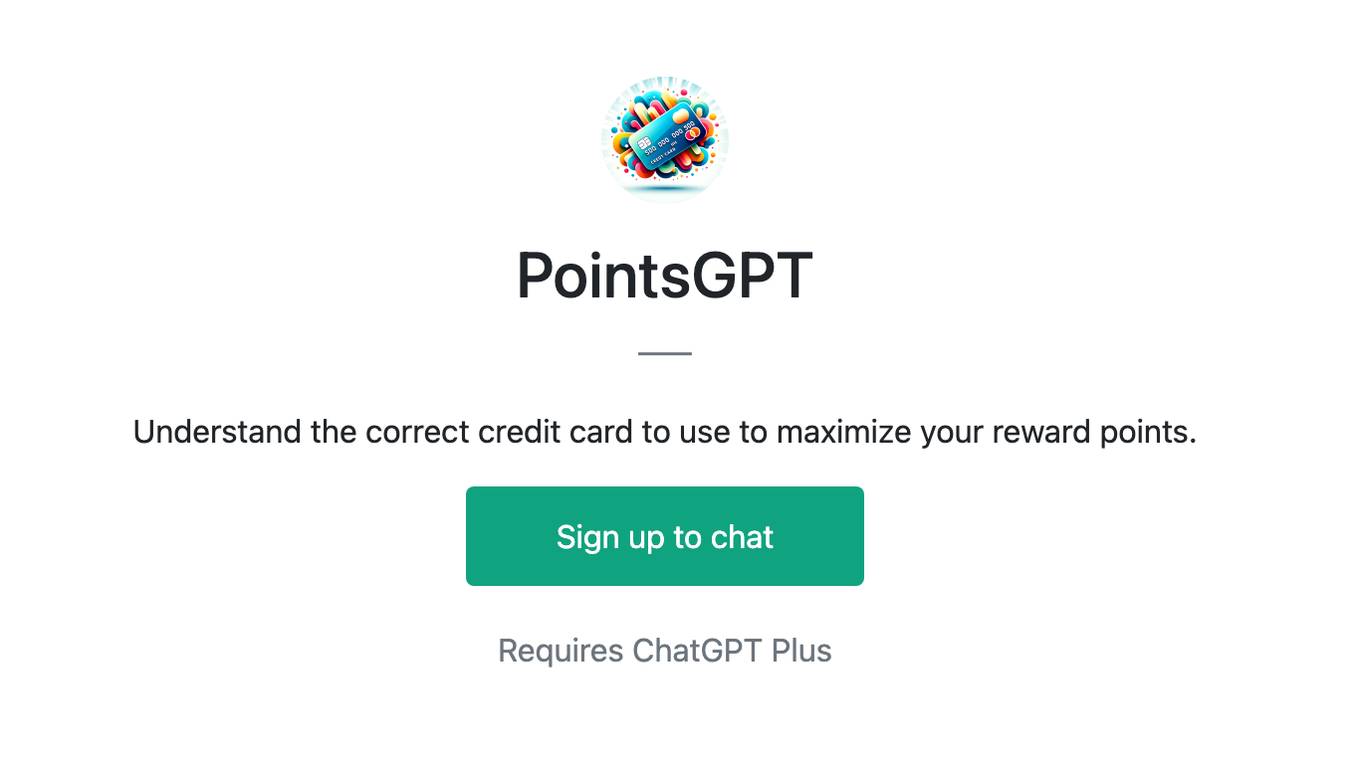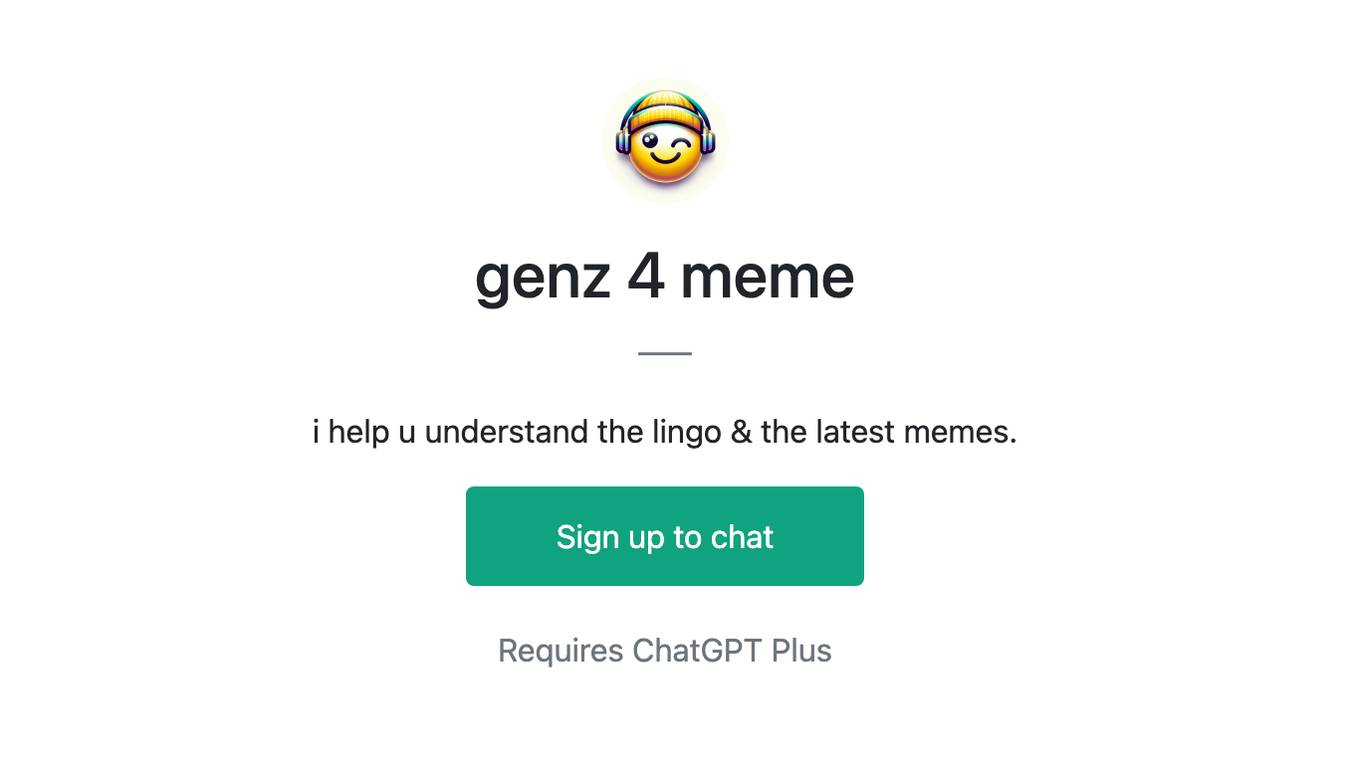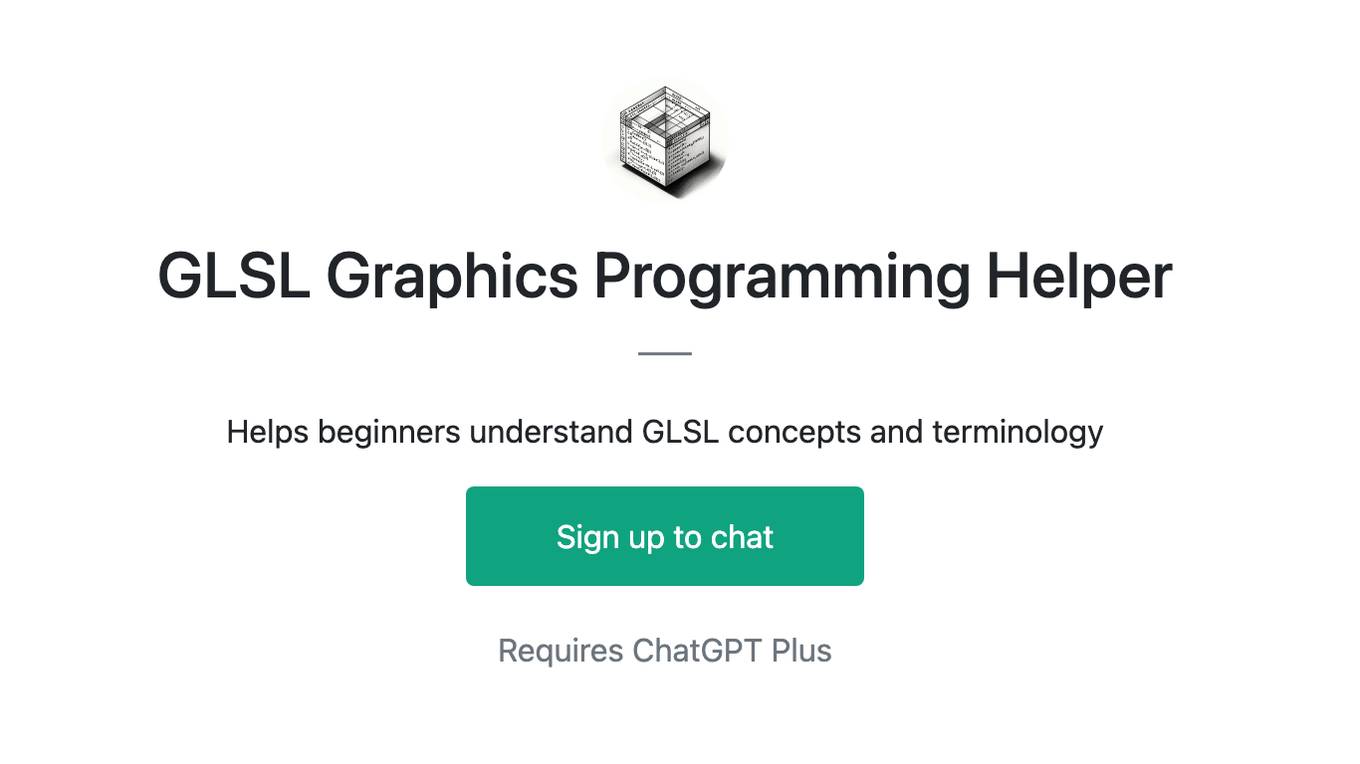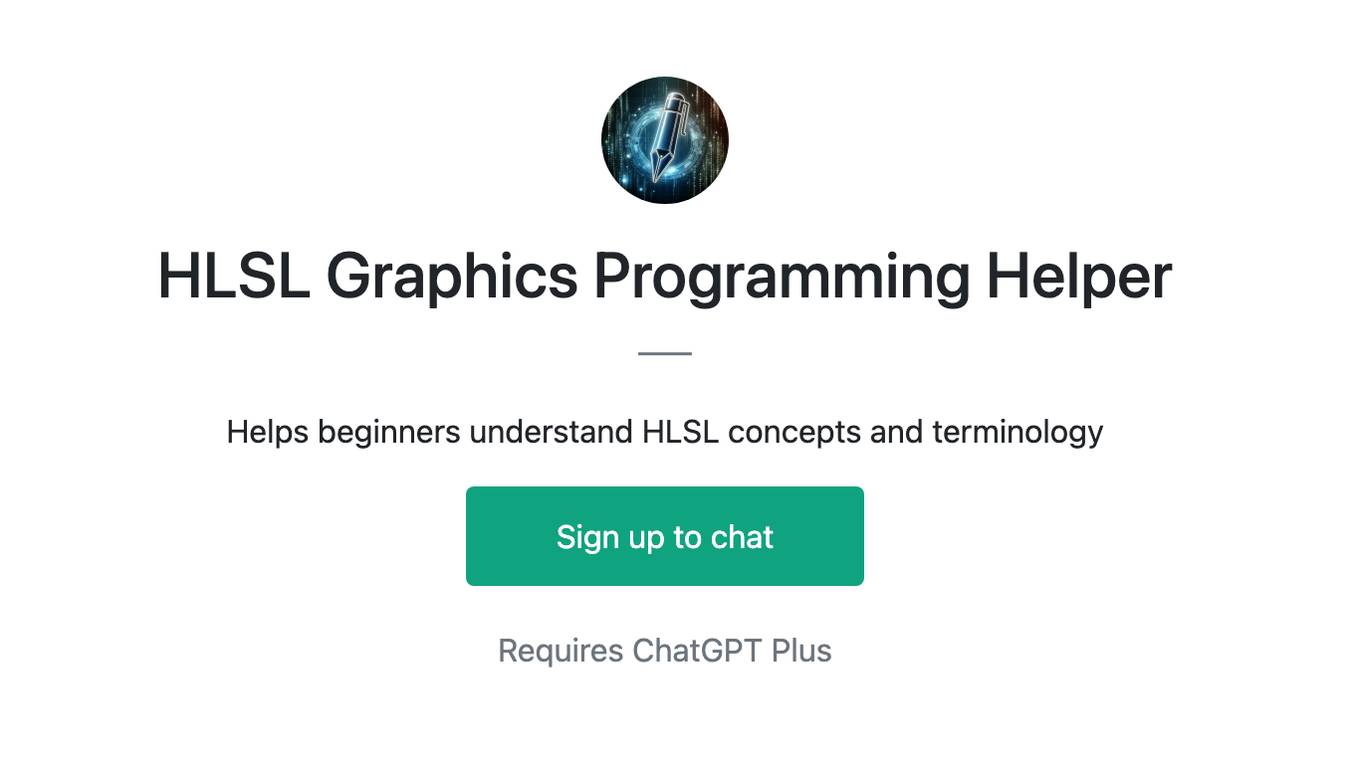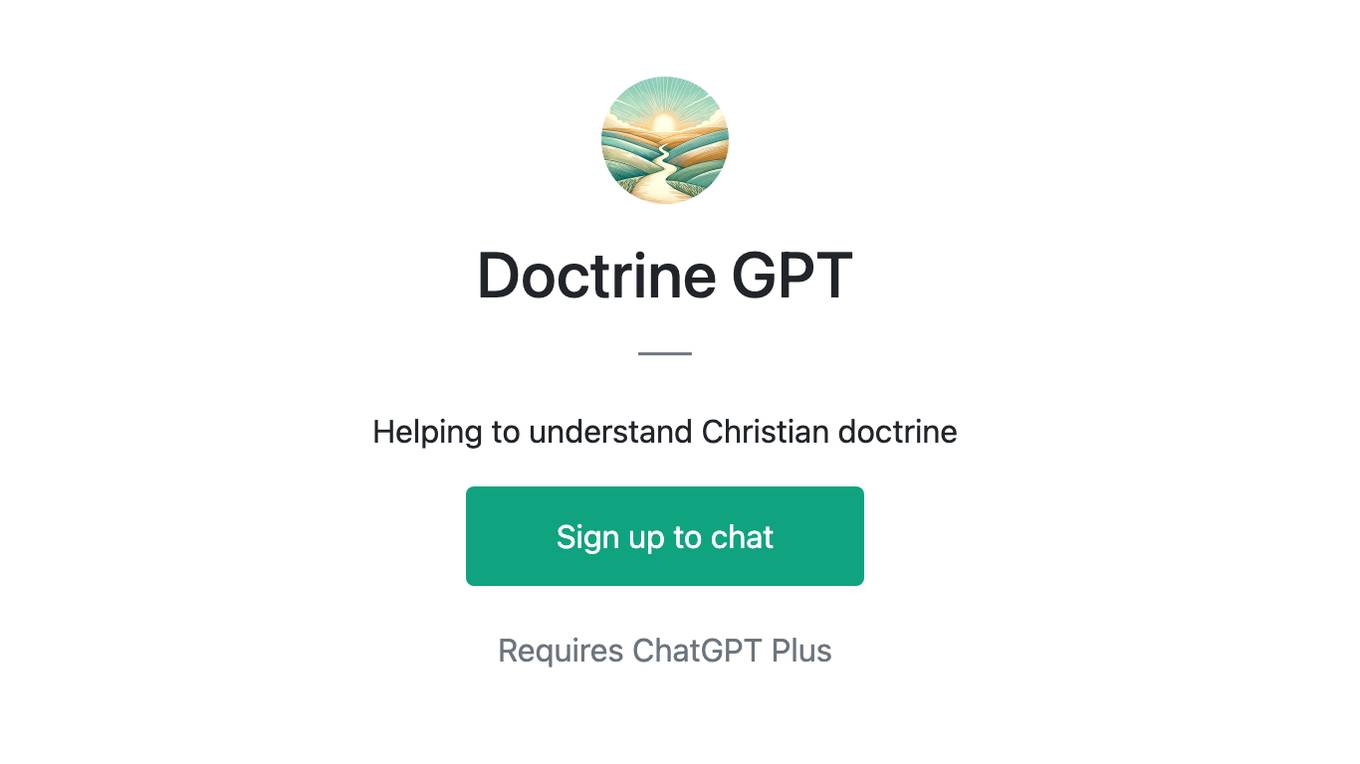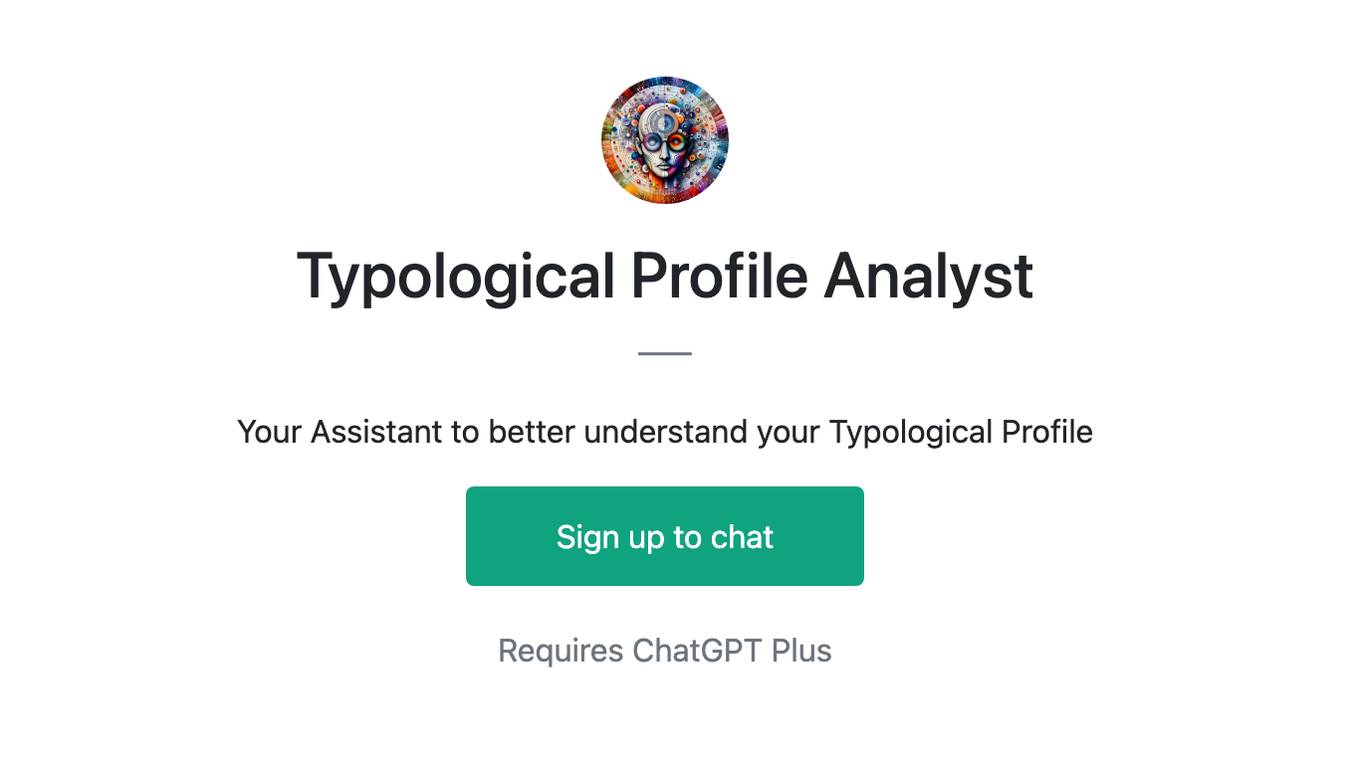Best AI tools for< Understand Llms >
20 - AI tool Sites
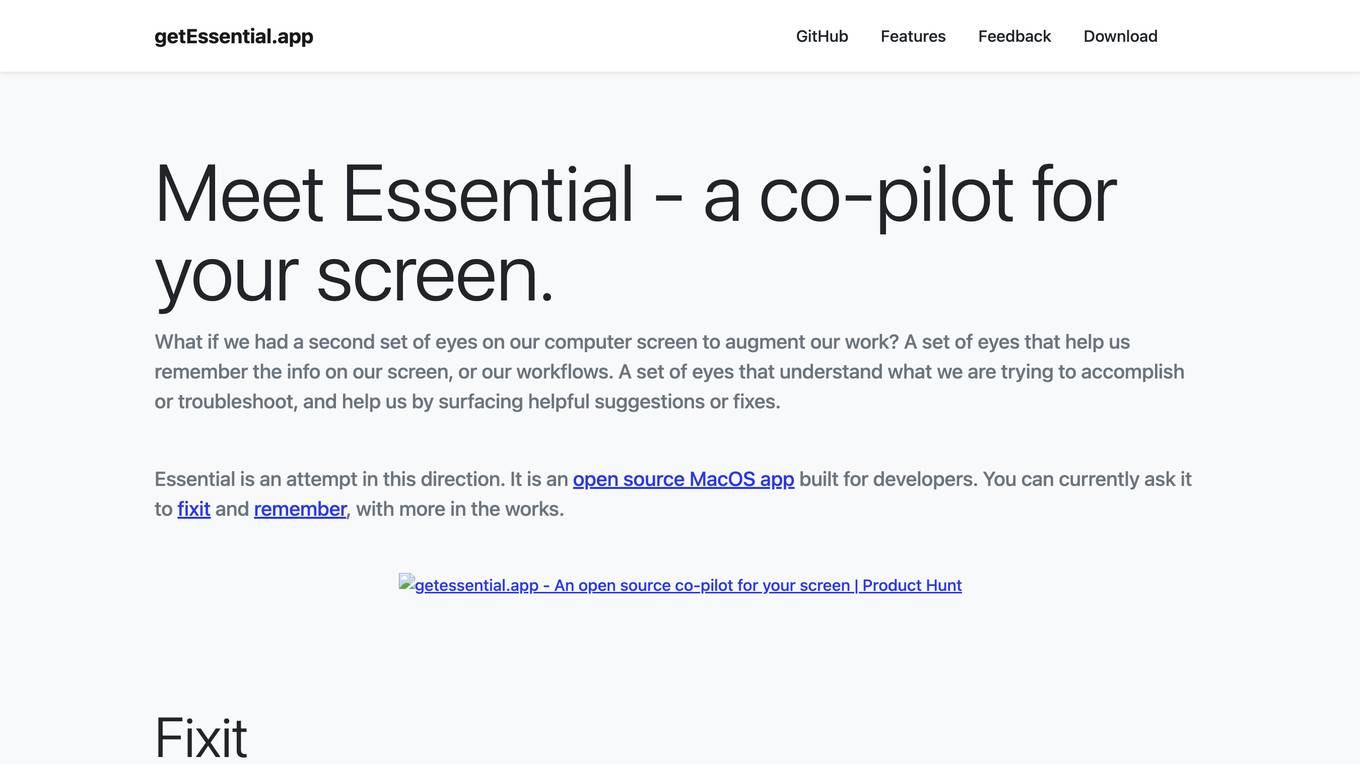
Essential
Essential is an open-source macOS app that acts as a co-pilot for your screen. It uses computer vision and OpenAI's LLMs to understand what's on your screen and can help you troubleshoot any error messages you run into. Essential can also remember important information from your screen, such as code snippets or website URLs, and make them easily accessible later. All of this happens entirely on your Mac, with no data ever leaving your system.
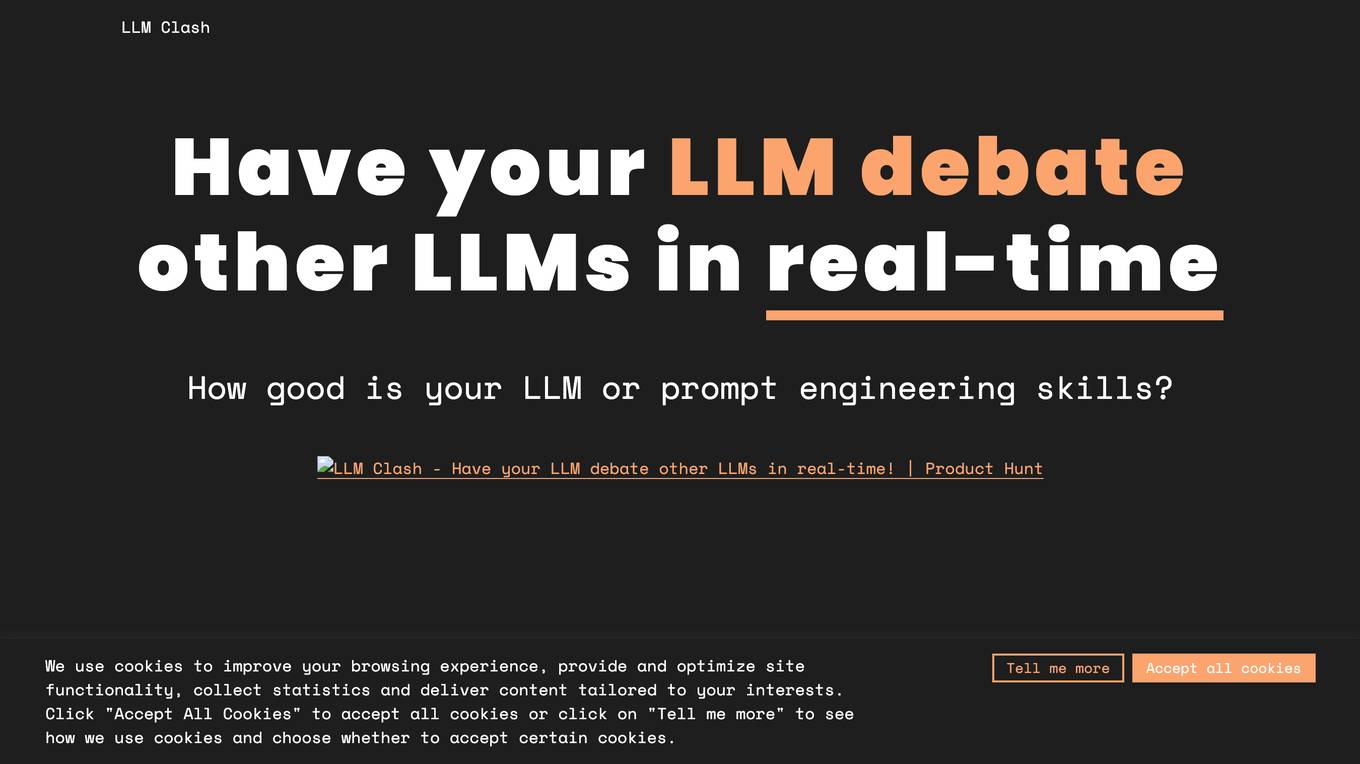
LLM Clash
LLM Clash is a web-based application that allows users to compare the outputs of different large language models (LLMs) on a given task. Users can input a prompt and select which LLMs they want to compare. The application will then display the outputs of the LLMs side-by-side, allowing users to compare their strengths and weaknesses.
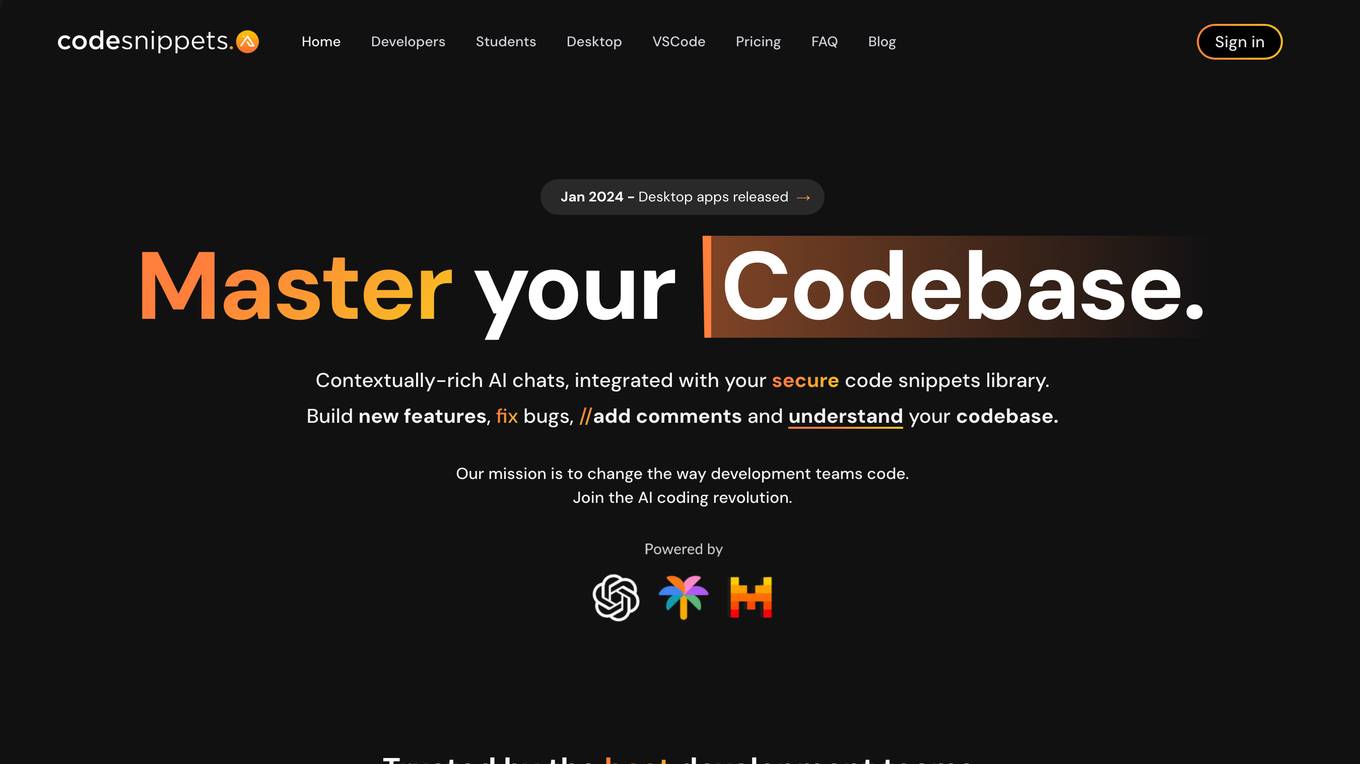
Code Snippets AI
Code Snippets AI is an AI-powered code snippets library for teams. It helps developers master their codebase with contextually-rich AI chats, integrated with a secure code snippets library. Developers can build new features, fix bugs, add comments, and understand their codebase with the help of Code Snippets AI. The tool is trusted by the best development teams and helps developers code smarter than ever. With Code Snippets AI, developers can leverage the power of a codebase aware assistant, helping them write clean, performance optimized code. They can also create documentation, refactor, debug and generate code with full codebase context. This helps developers spend more time creating code and less time debugging errors.
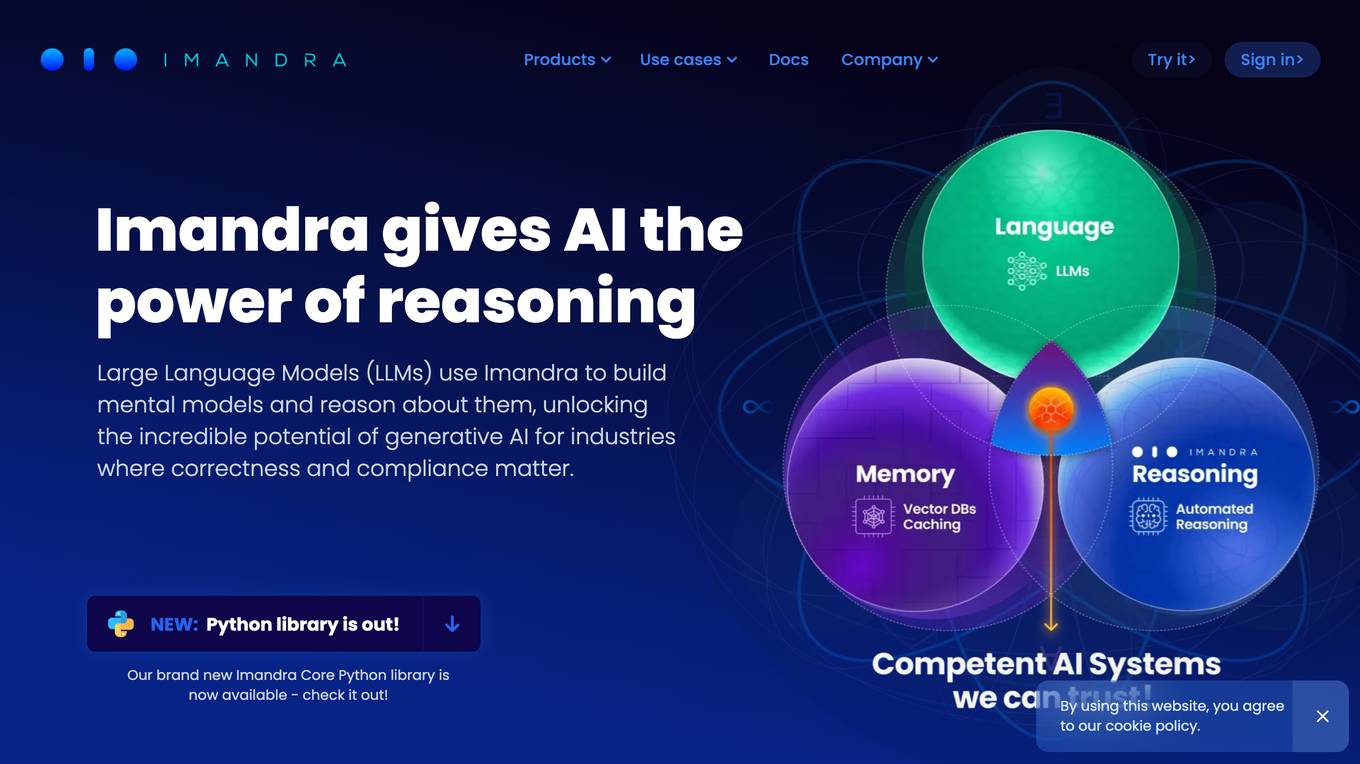
Imandra
Imandra is a company that provides automated logical reasoning for Large Language Models (LLMs). Imandra's technology allows LLMs to build mental models and reason about them, unlocking the potential of generative AI for industries where correctness and compliance matter. Imandra's platform is used by leading financial firms, the US Air Force, and DARPA.
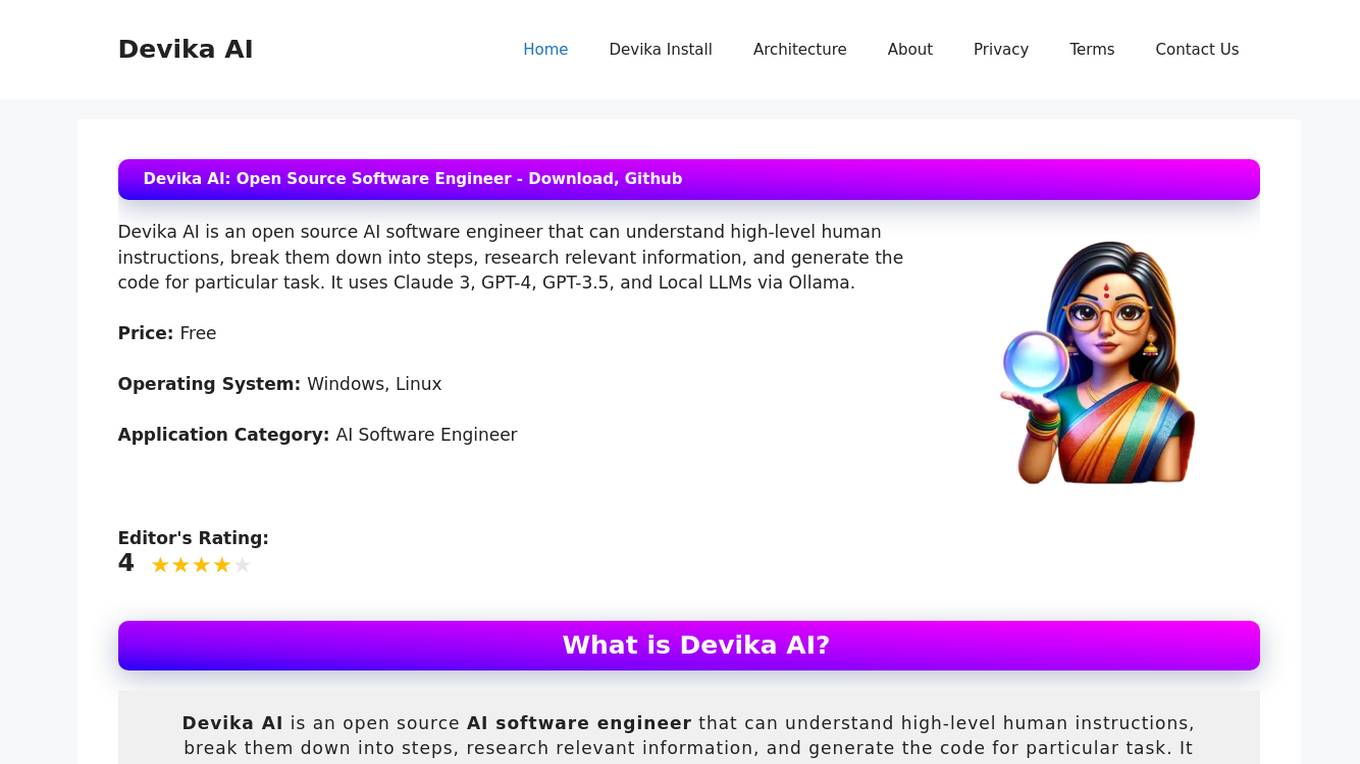
Devika AI
Devika AI is an open-source AI software engineer that can understand high-level human instructions, break them down into steps, research relevant information, and generate code for particular tasks. It uses Claude 3, GPT-4, GPT-3.5, and Local LLMs via Ollama.
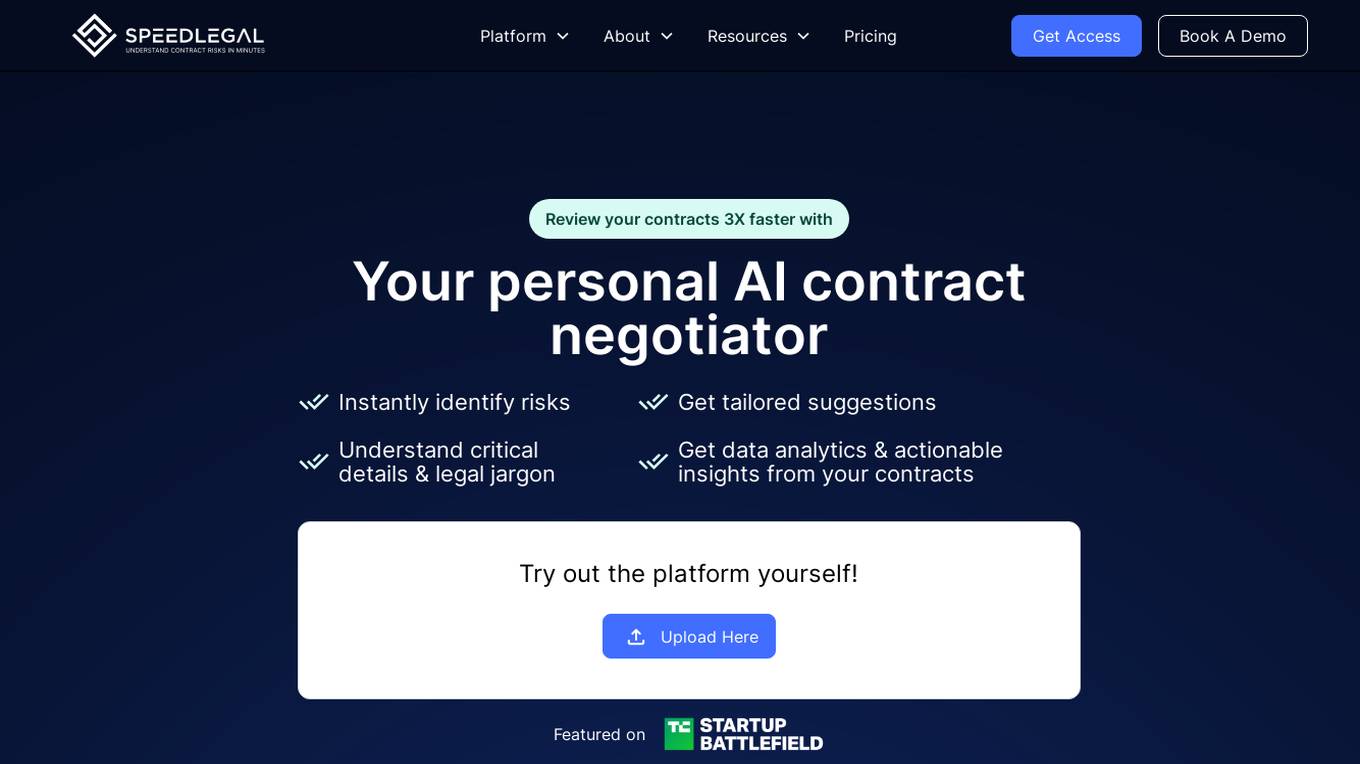
SpeedLegal
SpeedLegal is a technological startup that uses Machine Learning technology (specifically Deep Learning, LLMs and genAI) to highlight the terms and the key risks of any contract. We analyze your documents and send you a simplified report so you can make a more informed decision before signing your name on the dotted line.
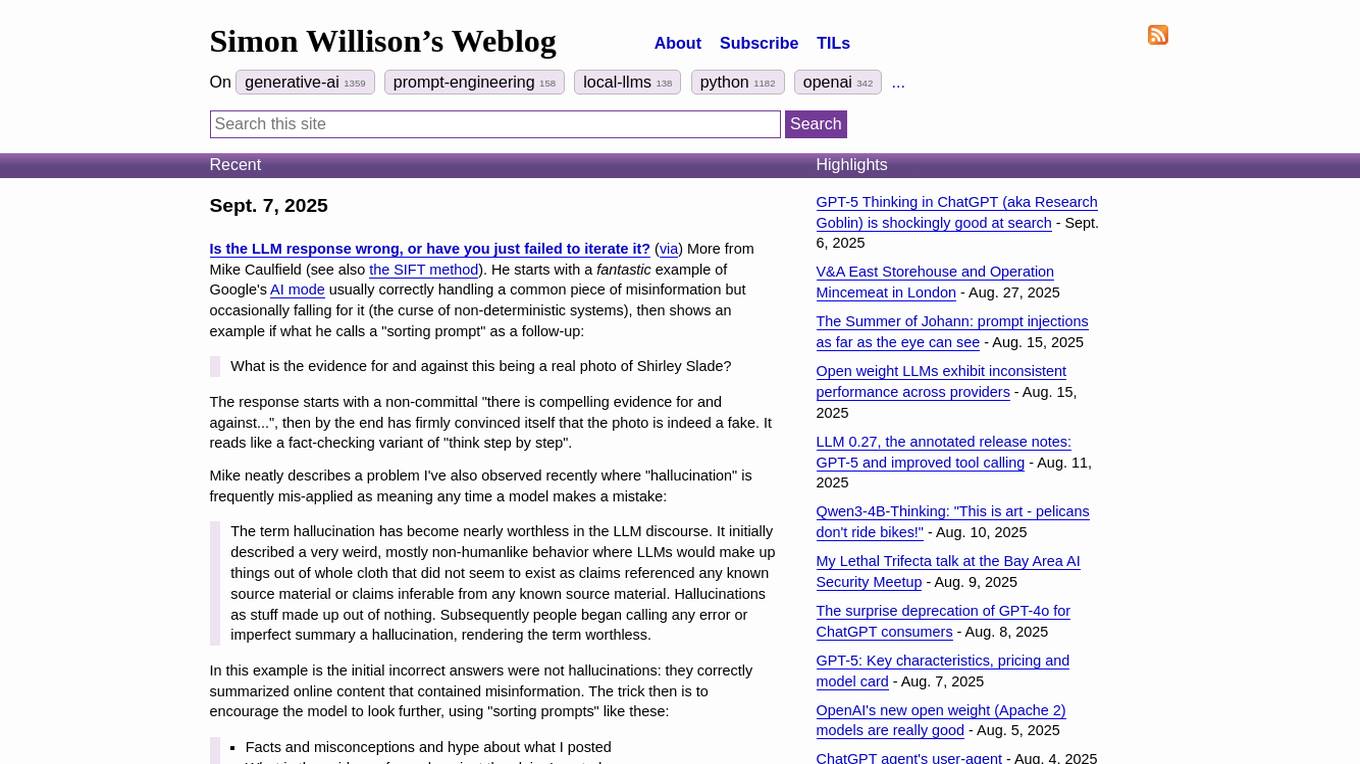
AI Insights Hub
The website is a platform dedicated to discussing and analyzing various developments and advancements in the field of AI, particularly focusing on Large Language Models (LLMs) such as GPT-5. It provides detailed insights, release notes, and discussions on AI models, applications, and security concerns. The website covers a wide range of topics related to AI, including prompt injections, spatial joins, memory features, and project-specific memory usage.

Tune Chat
Tune Chat is a chat application that utilizes open-source Large Language Models (LLMs) to provide users with a conversational and informative experience. It is designed to understand and respond to a wide range of user queries, offering assistance with various tasks and engaging in natural language conversations.
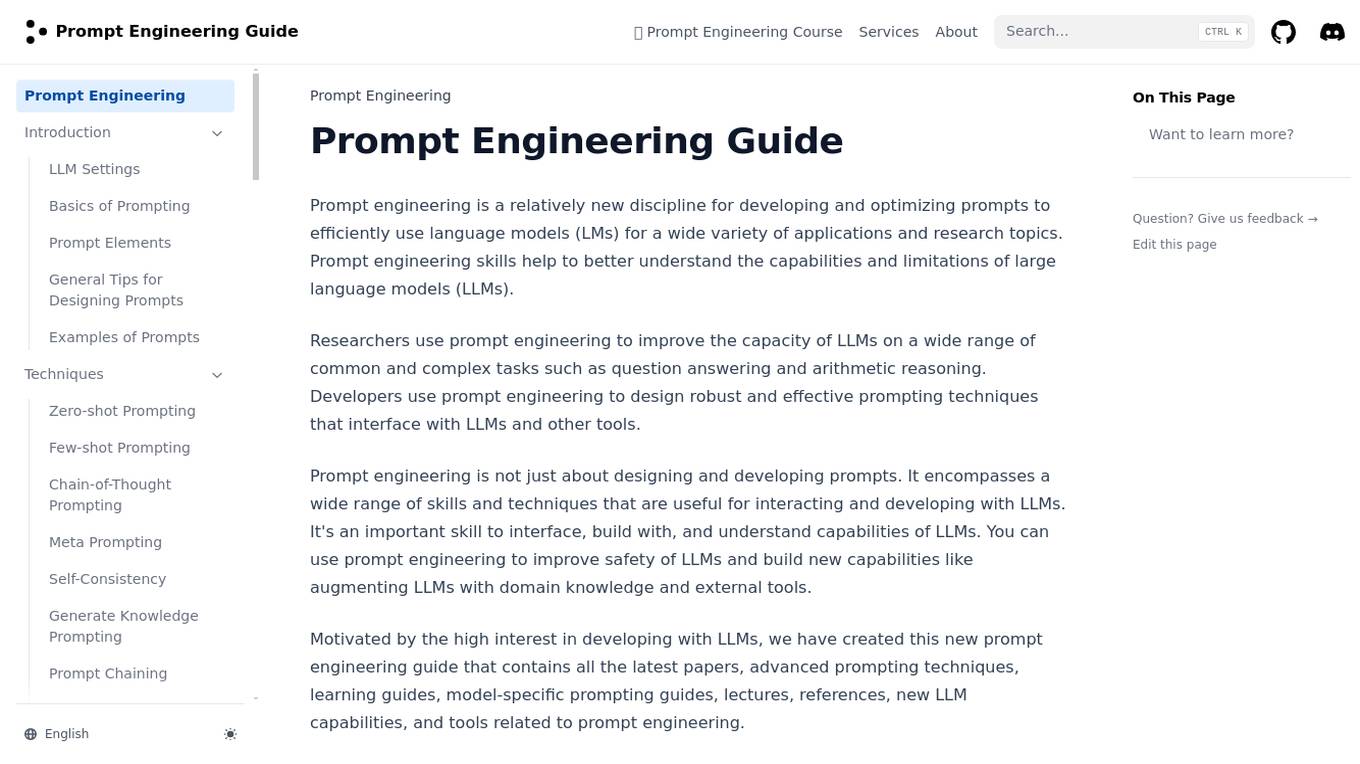
Prompt Engineering
Prompt Engineering is a discipline focused on developing and optimizing prompts to efficiently utilize language models (LMs) for various applications and research topics. It involves skills to understand the capabilities and limitations of large language models, improving their performance on tasks like question answering and arithmetic reasoning. Prompt engineering is essential for designing robust prompting techniques that interact with LLMs and other tools, enhancing safety and building new capabilities by augmenting LLMs with domain knowledge and external tools.
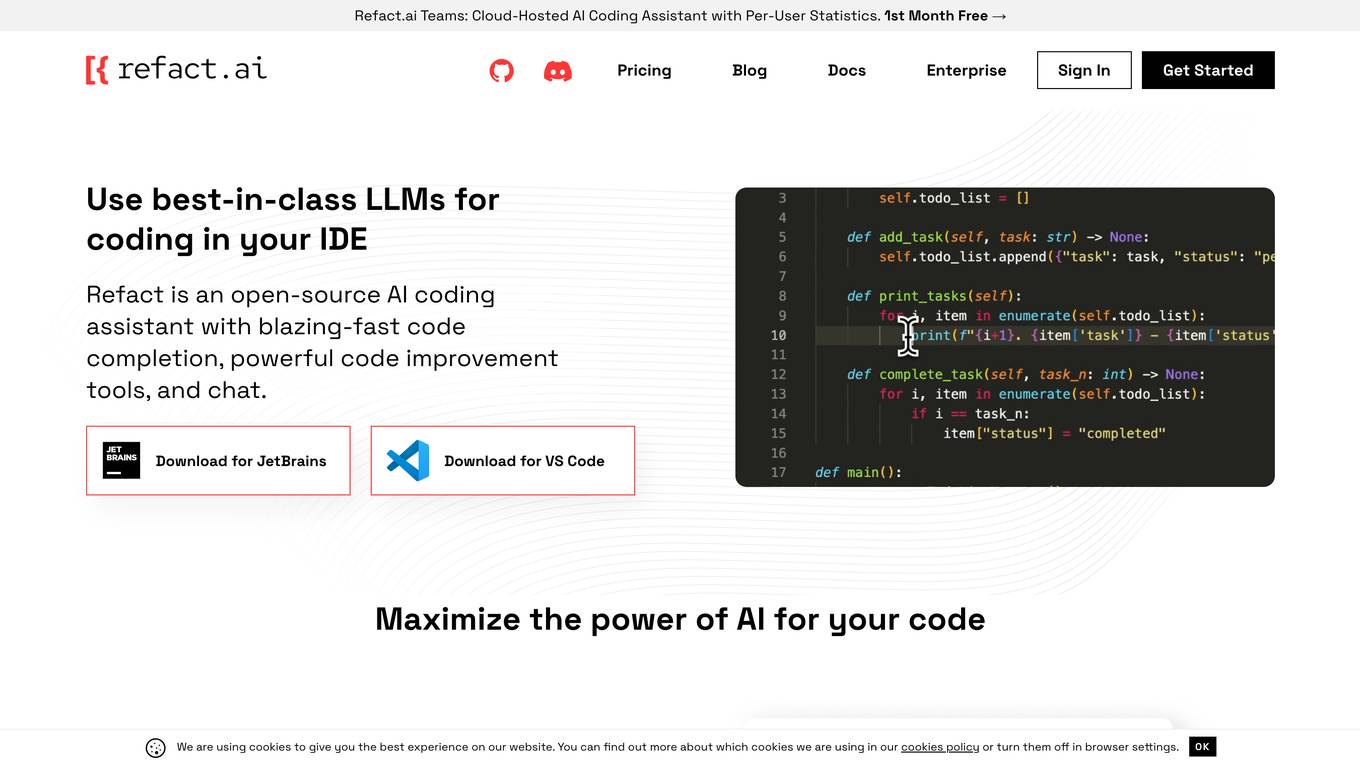
Refact.ai
Refact.ai is an open-source AI coding assistant that offers a range of features including code completion, refactoring, and chat. It supports various LLMs such as GPT-4 and Code LLama, allowing users to choose the model that best suits their needs. Refact understands the context of the codebase using a fill-in-the-middle technique, providing relevant suggestions. Users can opt for a self-hosted version or adjust privacy settings for the plugin.

Skillaeo
Skillaeo is an AI Engine Optimization (AEO) platform that helps websites optimize their content to be favorably understood and cited by AI search engines like ChatGPT, Perplexity, Claude, and Gemini. It focuses on improving AI visibility by providing evidence-based fixes, competitor insights, and Skills Pack generation to enhance brand citations in AI-generated answers and recommendations. Skillaeo offers real-time AI audits, citation tracking, competitor analysis, and prioritized fixes to help websites improve their AEO score and visibility in AI search results.

xAI Grok
xAI Grok is a visual analytics platform that helps users understand and interpret machine learning models. It provides a variety of tools for visualizing and exploring model data, including interactive charts, graphs, and tables. xAI Grok also includes a library of pre-built visualizations that can be used to quickly get started with model analysis.

Brandwatch
Brandwatch is a social media management and analytics platform that helps businesses understand and engage with their customers. It offers a range of features, including social listening, influencer marketing, and content management. Brandwatch is used by some of the world's largest brands, including Virgin Holidays, OnePlus, and Metia.
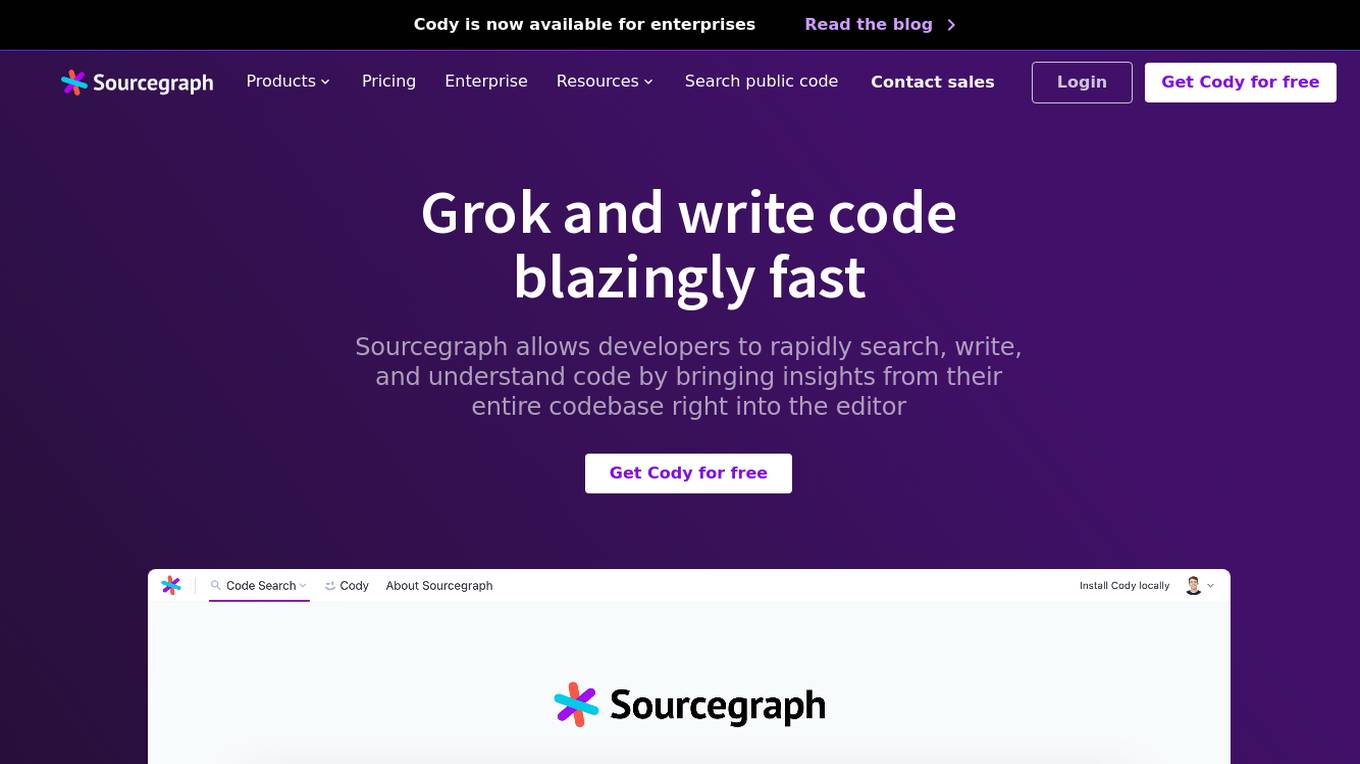
Sourcegraph
Sourcegraph is a code intelligence platform that helps developers write, fix, and maintain code faster. It uses artificial intelligence to understand the code graph and provide insights that help developers focus on writing and shipping code. Sourcegraph is used by over 2.5 million engineers at companies like Google, Amazon, and Microsoft.
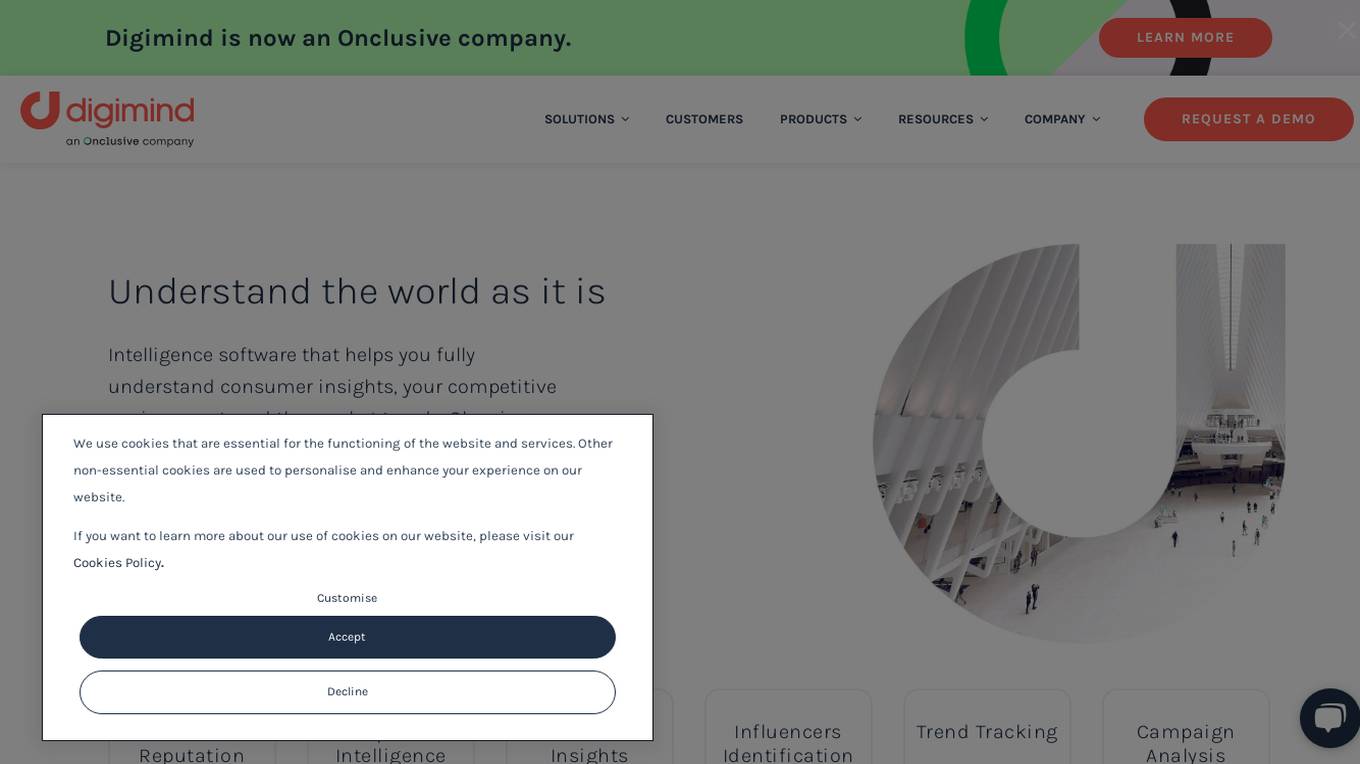
Digimind
Digimind is an intelligence software platform that provides solutions for brand reputation, competitive intelligence, consumer insights, influencer identification, trend tracking, and campaign analysis. It leverages Artificial Intelligence (AI) to collect and analyze billions of content pieces, offering real-time market intelligence and helping users fully understand consumer insights and market trends. The platform is trusted by global brands and agencies, offering easy-to-read, up-to-date analysis and reports. Digimind's AI Sense technology provides automated curation and recommended actions, delivering compelling reports instantly.
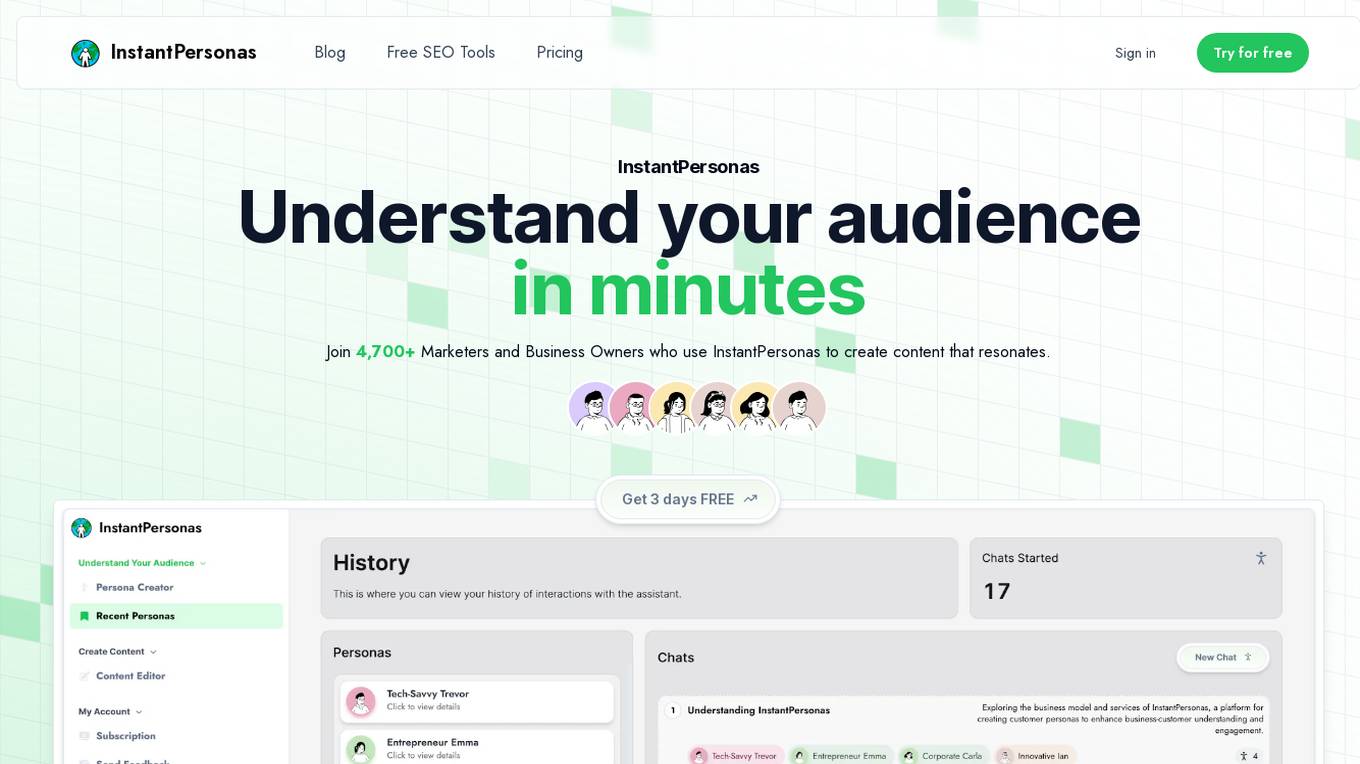
InstantPersonas
InstantPersonas is an AI-powered tool that allows users to generate detailed user personas in seconds. It helps marketers and business owners understand their audience better by providing real-time insights into the thoughts of their audience. With InstantPersonas, users can create persona-driven content that resonates with their target audience, ultimately improving their content creation process and marketing strategies. The tool offers industry-leading AI capabilities at an affordable price, making it a valuable asset for businesses looking to enhance their marketing efforts.

PandaChat
PandaChat is a suite of AI-powered products designed to enhance productivity and streamline communication. It offers a range of tools for both personal and business use, including: - PandaChat Assistant: A virtual assistant that can chat with users, summarize articles, and answer questions based on uploaded documents or online content. - PandaChat Live: A platform for embedding chatbots on websites, providing personalized support and enhancing user experience. - Hai News: An AI tool that allows users to chat with news articles, providing summaries and insights on specific topics. - Hai Surf: An AI tool that enables users to chat with any web content, extracting information and answering questions. PandaChat is committed to data security and privacy, giving users control over their data and offering on-premises installation for businesses. It has been recognized for its innovation, winning the AI/Machine Learning Innovation of the Year award at the SDC Awards.
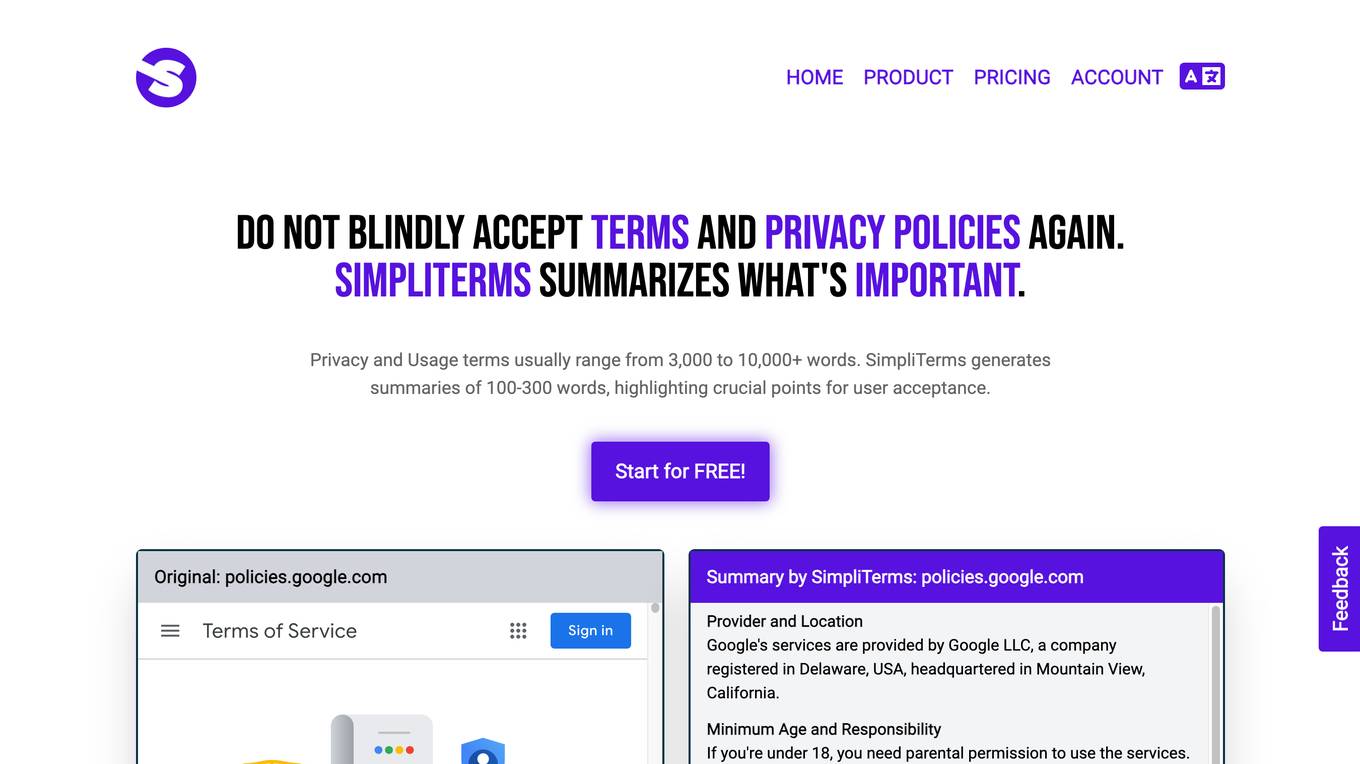
SimpliTerms
SimpliTerms is an AI-powered browser extension that simplifies and summarizes the complex and lengthy terms of use and privacy policies found on websites. By clicking on its icon, users can quickly understand and make informed decisions about the content they are accepting. The extension offers real-time summaries, saves time, helps avoid legal issues, and protects user privacy. It features an intuitive interface, supports multiple languages, and provides improved AI-generated responses.
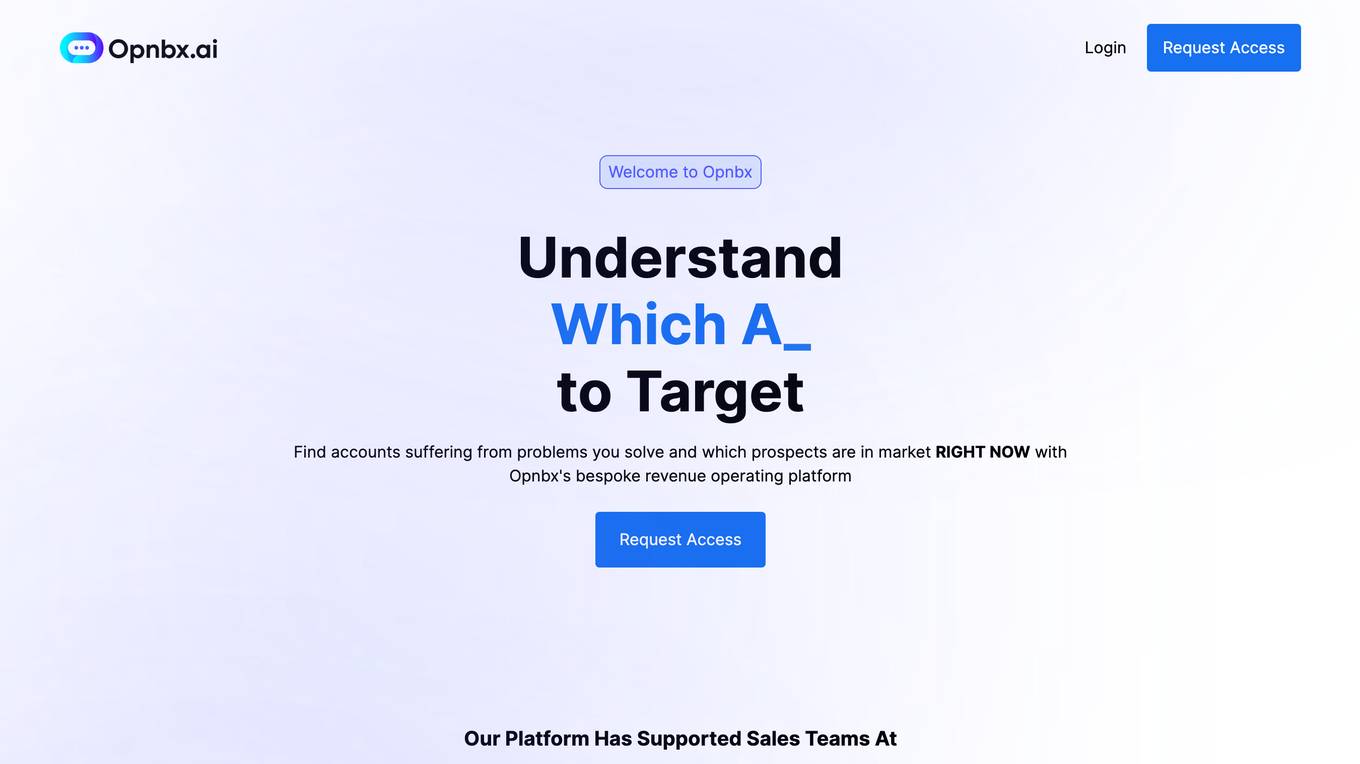
Opnbx
Opnbx is a bespoke revenue operating platform that helps sales teams understand their target market and prioritize their sales and marketing efforts. It uses AI to learn from a company's revenue team and scour billions of data points to give a real-time view of the market. Opnbx also provides insights into which companies are in buying mode right now and which prospects are visiting a company's website in real-time. It provides persona and contact details, including mobile numbers and email addresses, and has an AI email writing platform that provides the right research to create personalized and relevant messages in seconds.

Theodore AI
Theodore AI is an AI-powered tool that helps users understand complex topics quickly and easily. With just three clicks, users can get a clear and concise explanation of any topic, making it perfect for students, researchers, and anyone who wants to learn something new.
3 - Open Source AI Tools
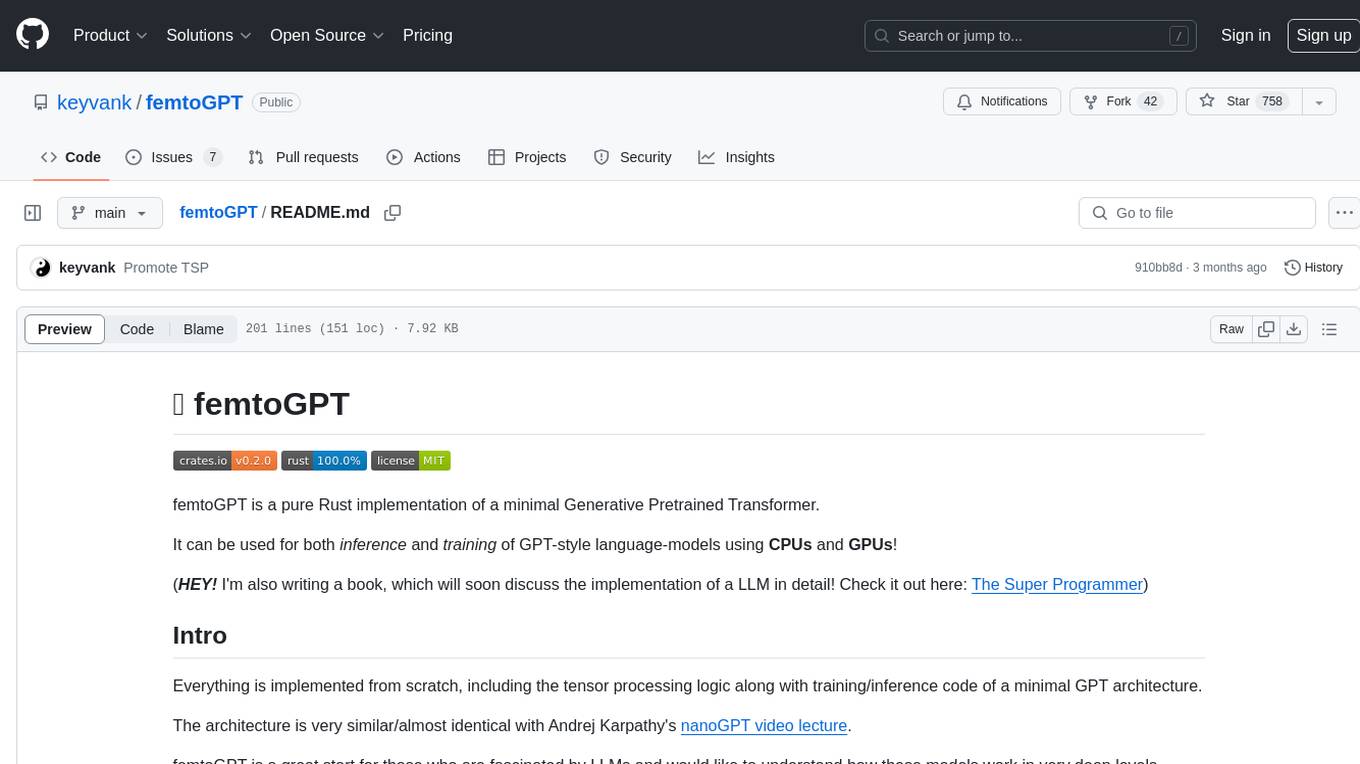
femtoGPT
femtoGPT is a pure Rust implementation of a minimal Generative Pretrained Transformer. It can be used for both inference and training of GPT-style language models using CPUs and GPUs. The tool is implemented from scratch, including tensor processing logic and training/inference code of a minimal GPT architecture. It is a great start for those fascinated by LLMs and wanting to understand how these models work at deep levels. The tool uses random generation libraries, data-serialization libraries, and a parallel computing library. It is relatively fast on CPU and correctness of gradients is checked using the gradient-check method.
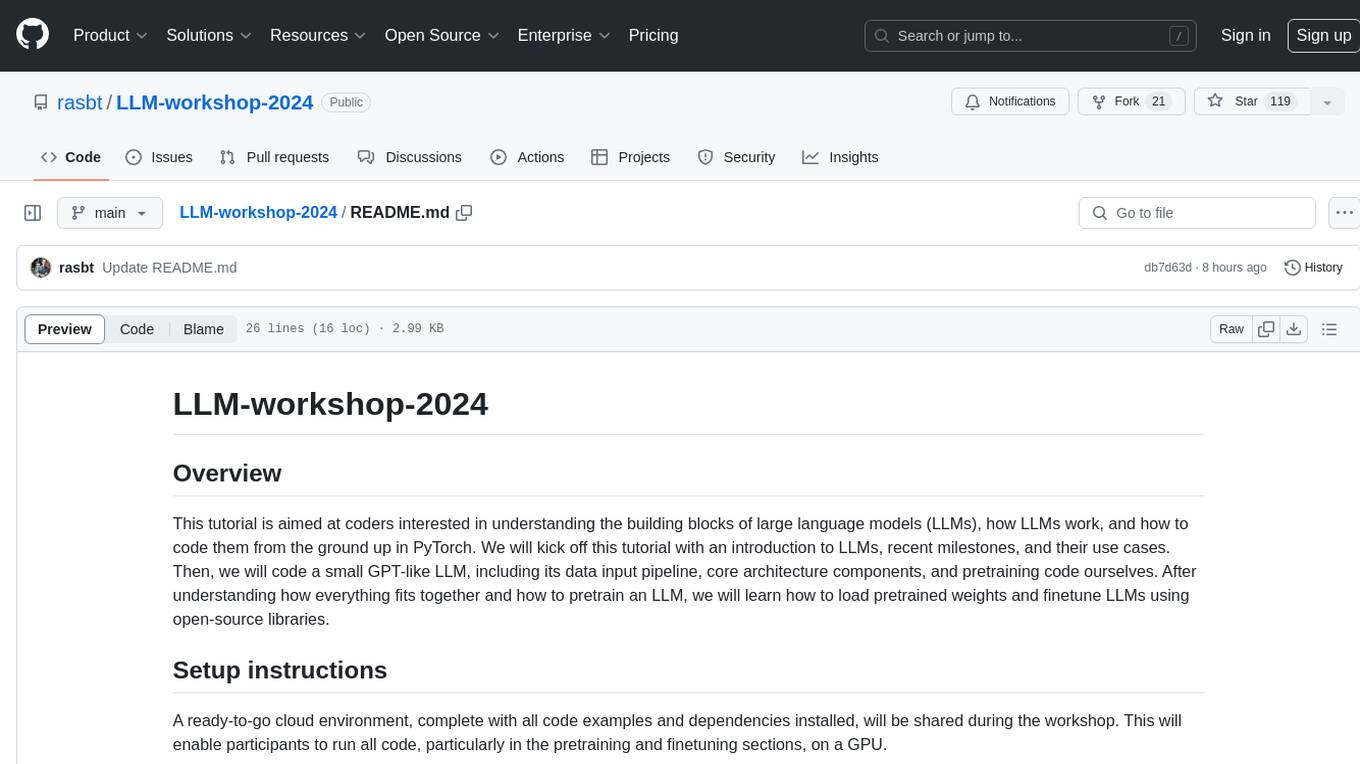
LLM-workshop-2024
LLM-workshop-2024 is a tutorial designed for coders interested in understanding the building blocks of large language models (LLMs), how LLMs work, and how to code them from scratch in PyTorch. The tutorial covers topics such as introduction to LLMs, understanding LLM input data, coding LLM architecture, pretraining LLMs, loading pretrained weights, and finetuning LLMs using open-source libraries. Participants will learn to implement a small GPT-like LLM, including data input pipeline, core architecture components, and pretraining code.
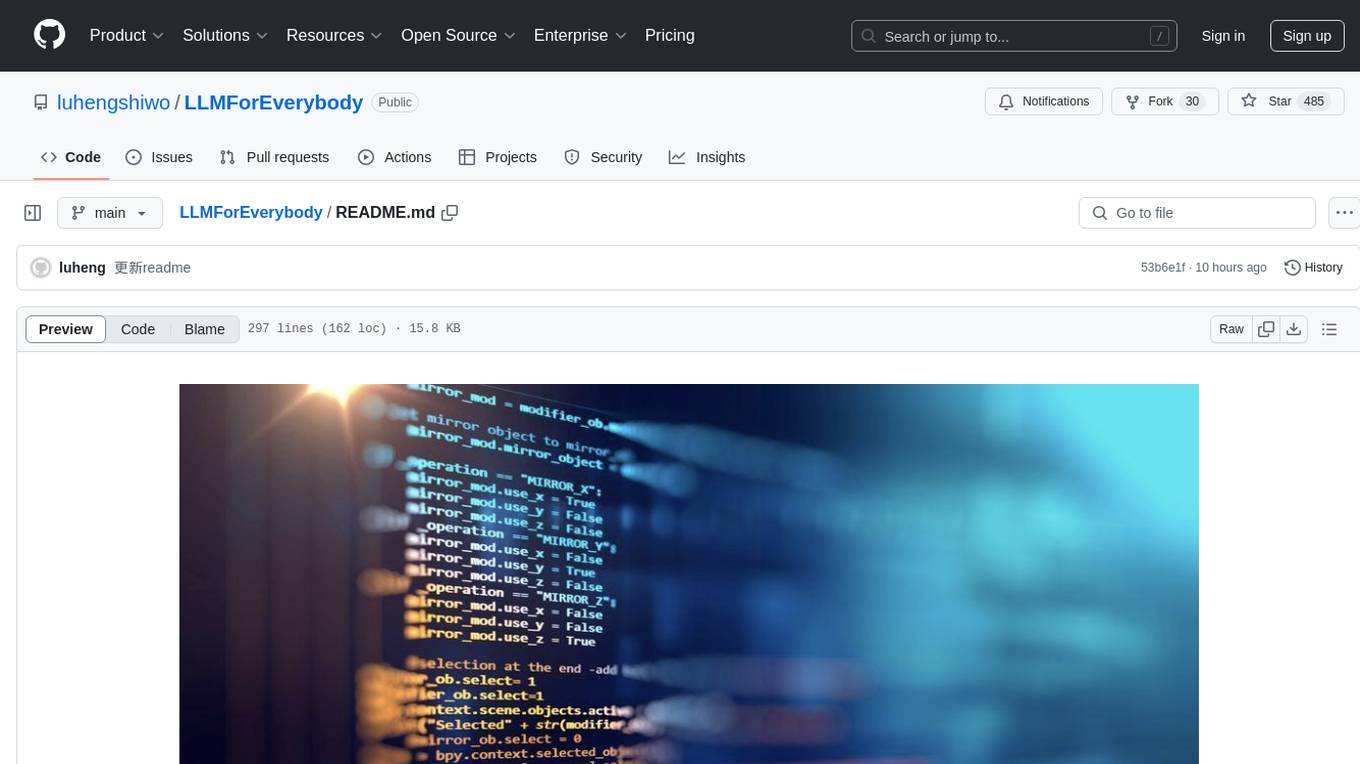
LLMForEverybody
LLMForEverybody is a comprehensive repository covering various aspects of large language models (LLMs) including pre-training, architecture, optimizers, activation functions, attention mechanisms, tokenization, parallel strategies, training frameworks, deployment, fine-tuning, quantization, GPU parallelism, prompt engineering, agent design, RAG architecture, enterprise deployment challenges, evaluation metrics, and current hot topics in the field. It provides detailed explanations, tutorials, and insights into the workings and applications of LLMs, making it a valuable resource for researchers, developers, and enthusiasts interested in understanding and working with large language models.
20 - OpenAI Gpts
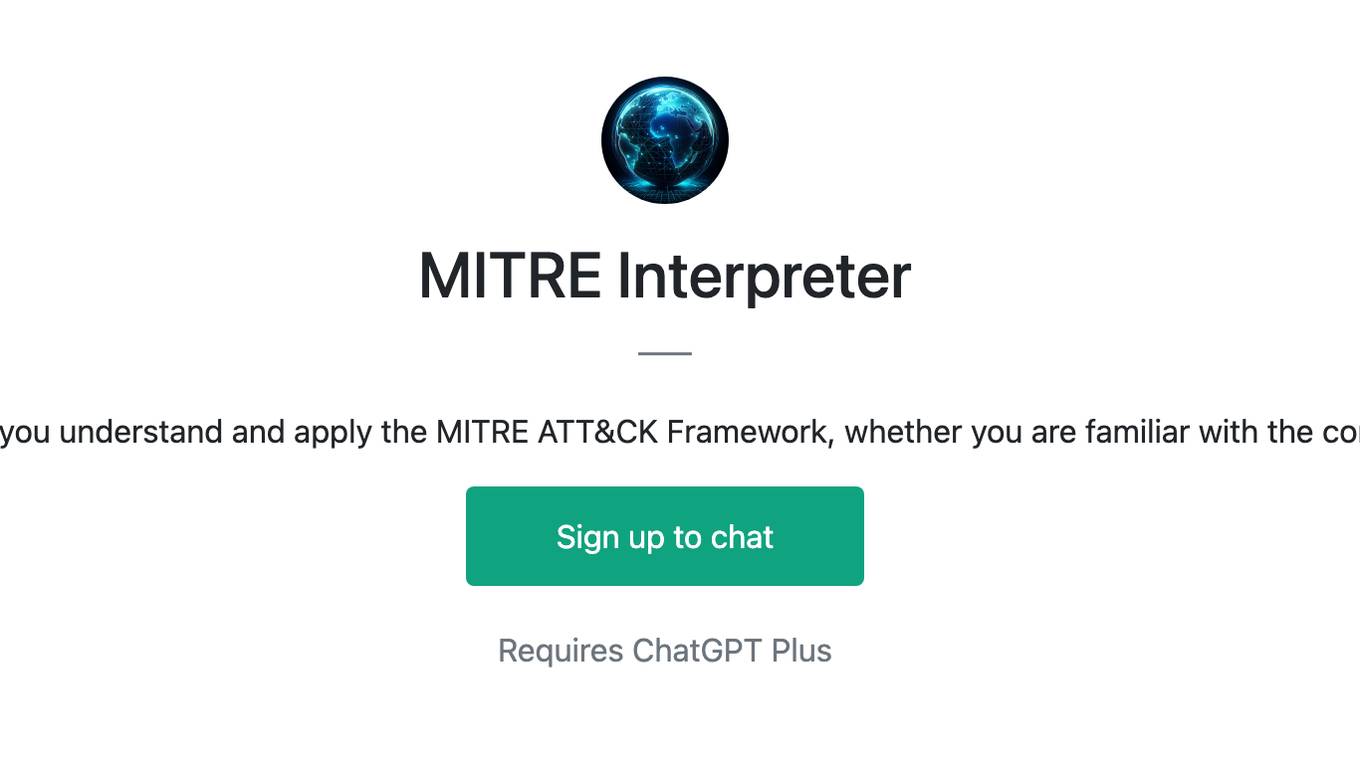
MITRE Interpreter
This GPT helps you understand and apply the MITRE ATT&CK Framework, whether you are familiar with the concepts or not.
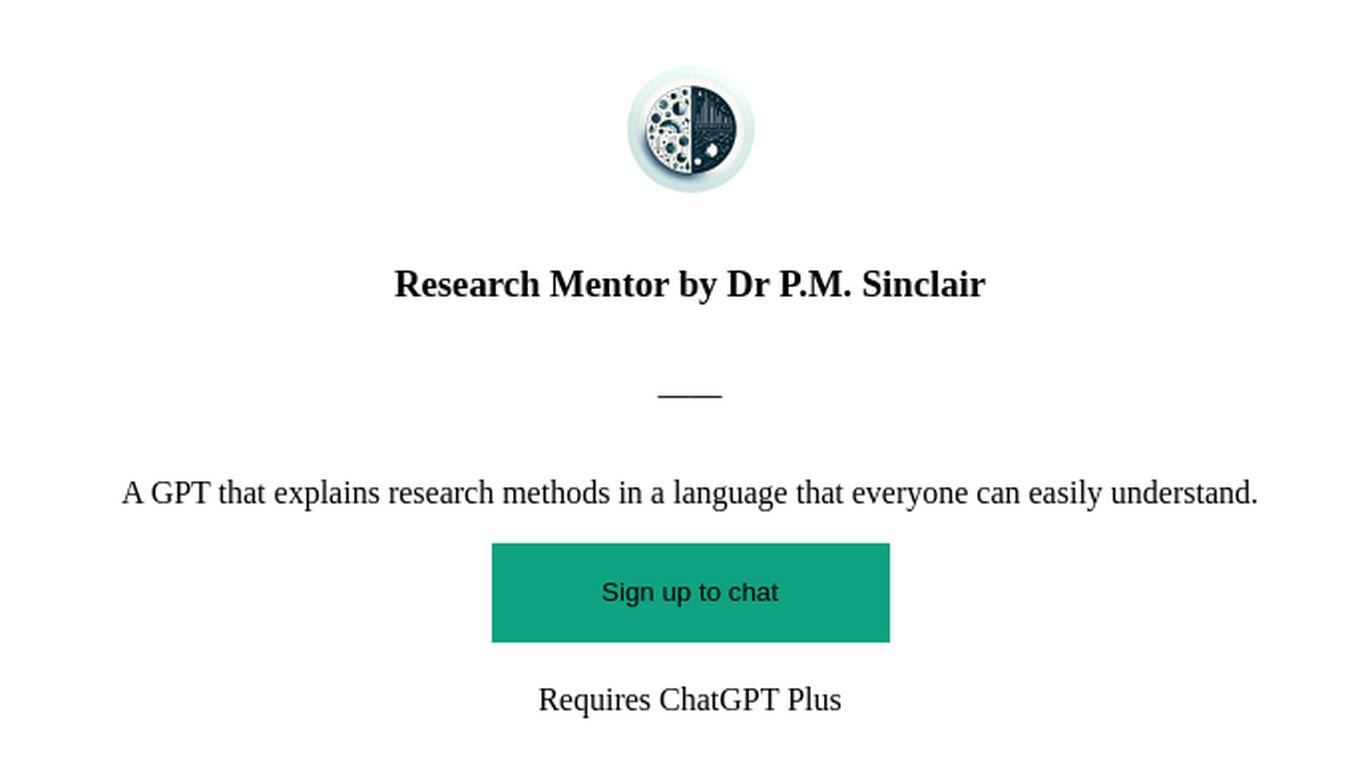
Research Mentor by Dr P.M. Sinclair
A GPT that explains research methods in a language that everyone can easily understand.

Praise Master
Our aim is to understand your unique needs intimately, providing customized commendations that sincerely convey your appreciation and recognition. Moreover, we will design and match the most suitable images to accompany the sentiment of your praise, enhancing the impact visually.

Personal Cryptoasset Security Wizard
An easy to understand wizard that guides you through questions about how to protect, back up and inherit essential digital information and assets such as crypto seed phrases, private keys, digital art, wallets, IDs, health and insurance information for you and your family.
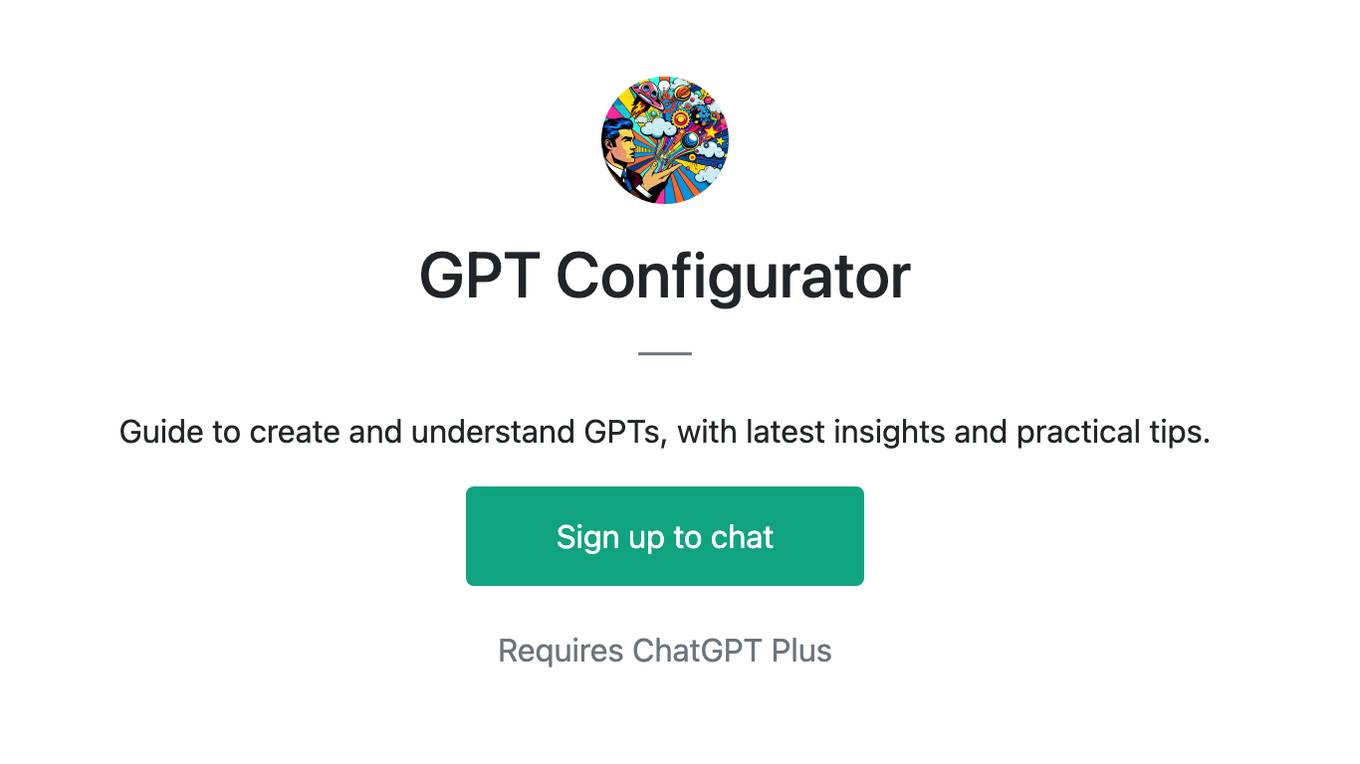
GPT Configurator
Guide to create and understand GPTs, with latest insights and practical tips.

Non-Profit Press Release Pro
Easy-to-understand guidance for non-profits in crafting impactful press releases.
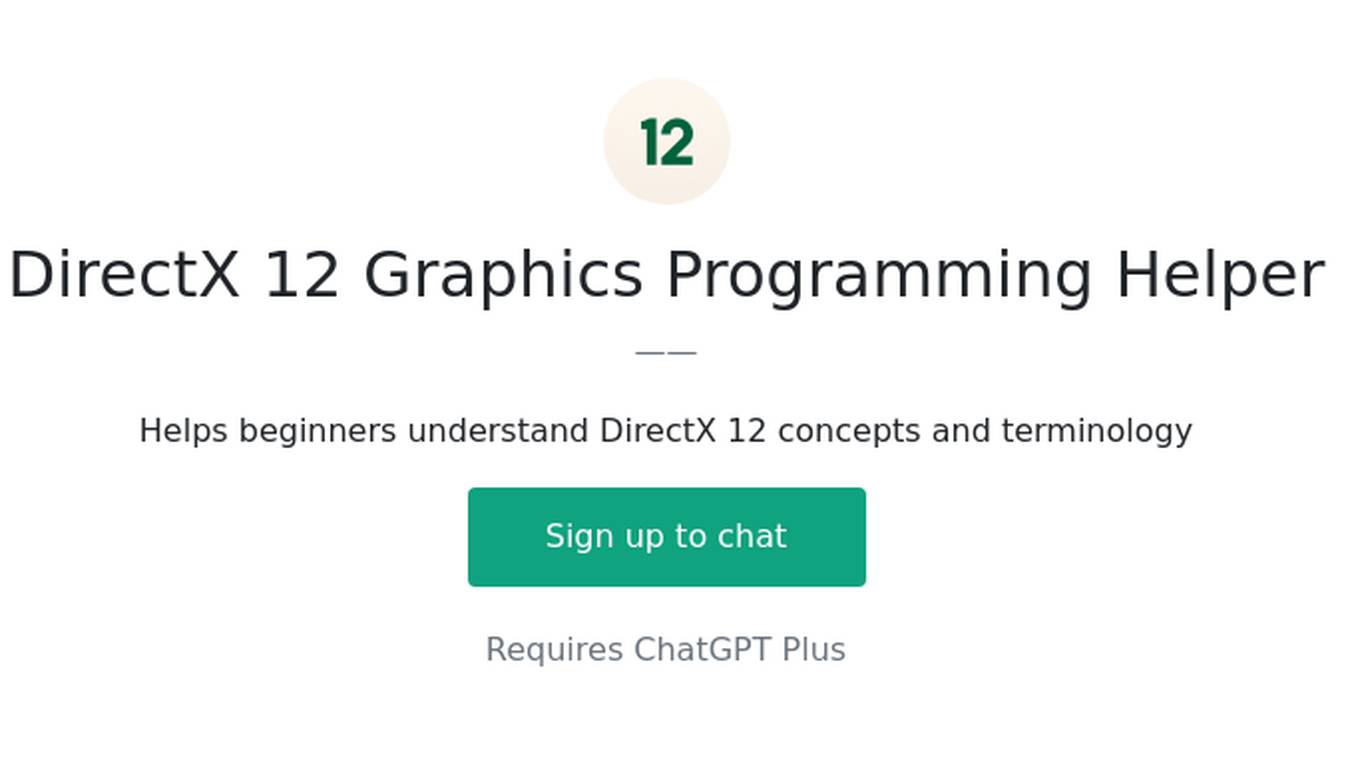
DirectX 12 Graphics Programming Helper
Helps beginners understand DirectX 12 concepts and terminology
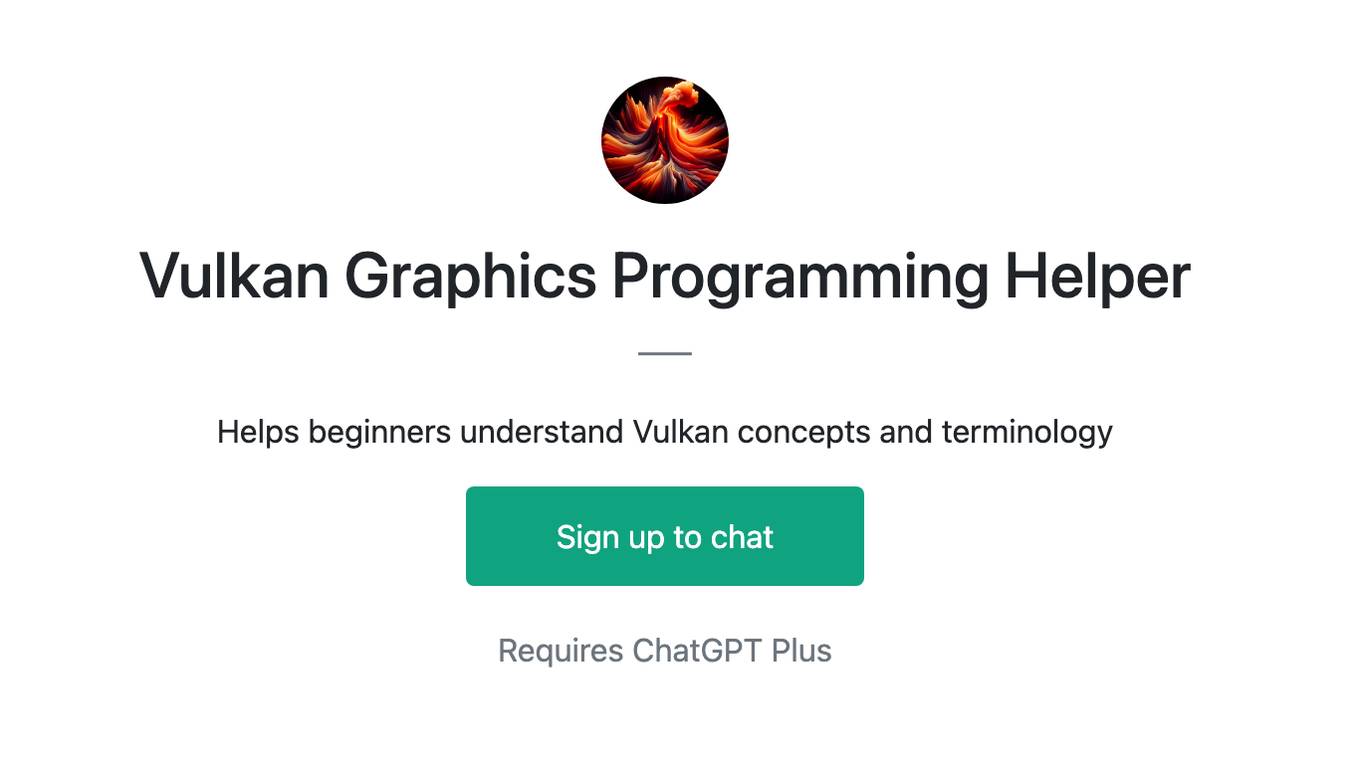
Vulkan Graphics Programming Helper
Helps beginners understand Vulkan concepts and terminology
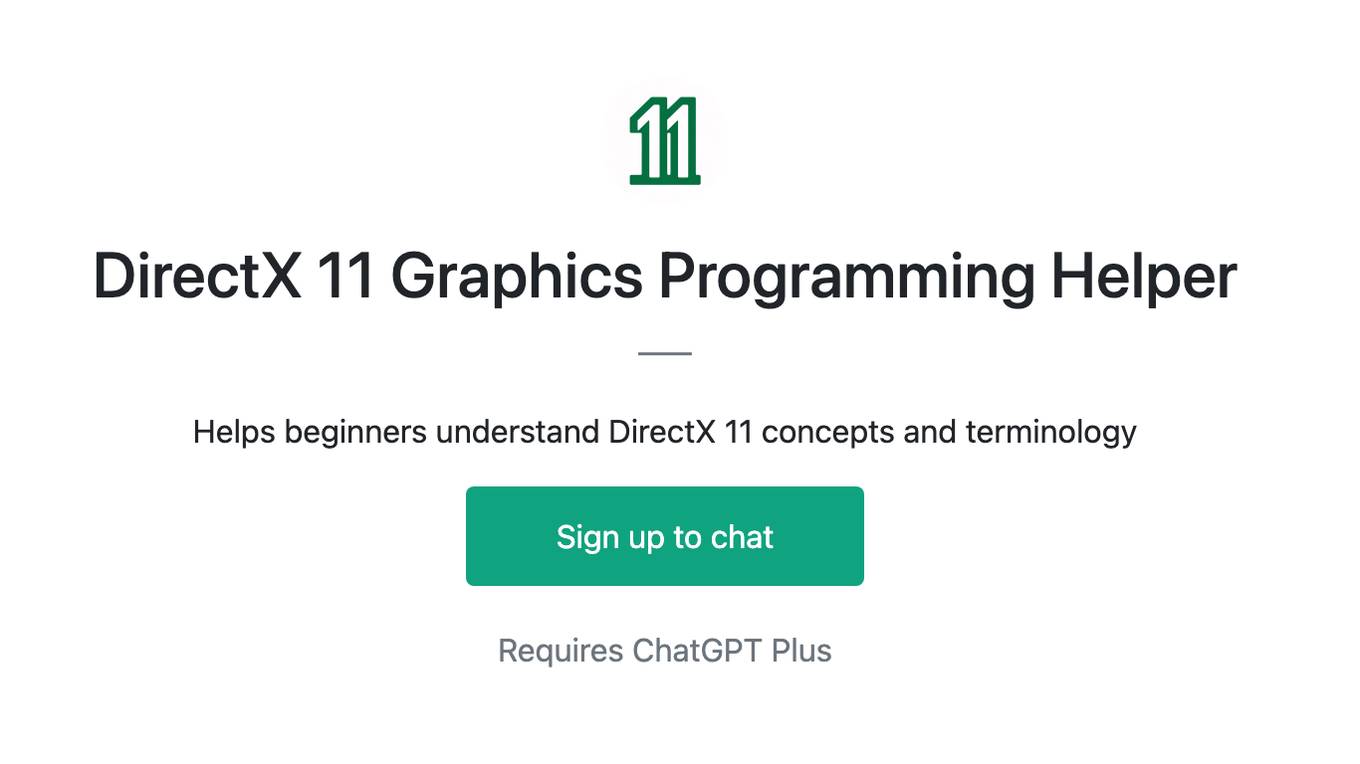
DirectX 11 Graphics Programming Helper
Helps beginners understand DirectX 11 concepts and terminology
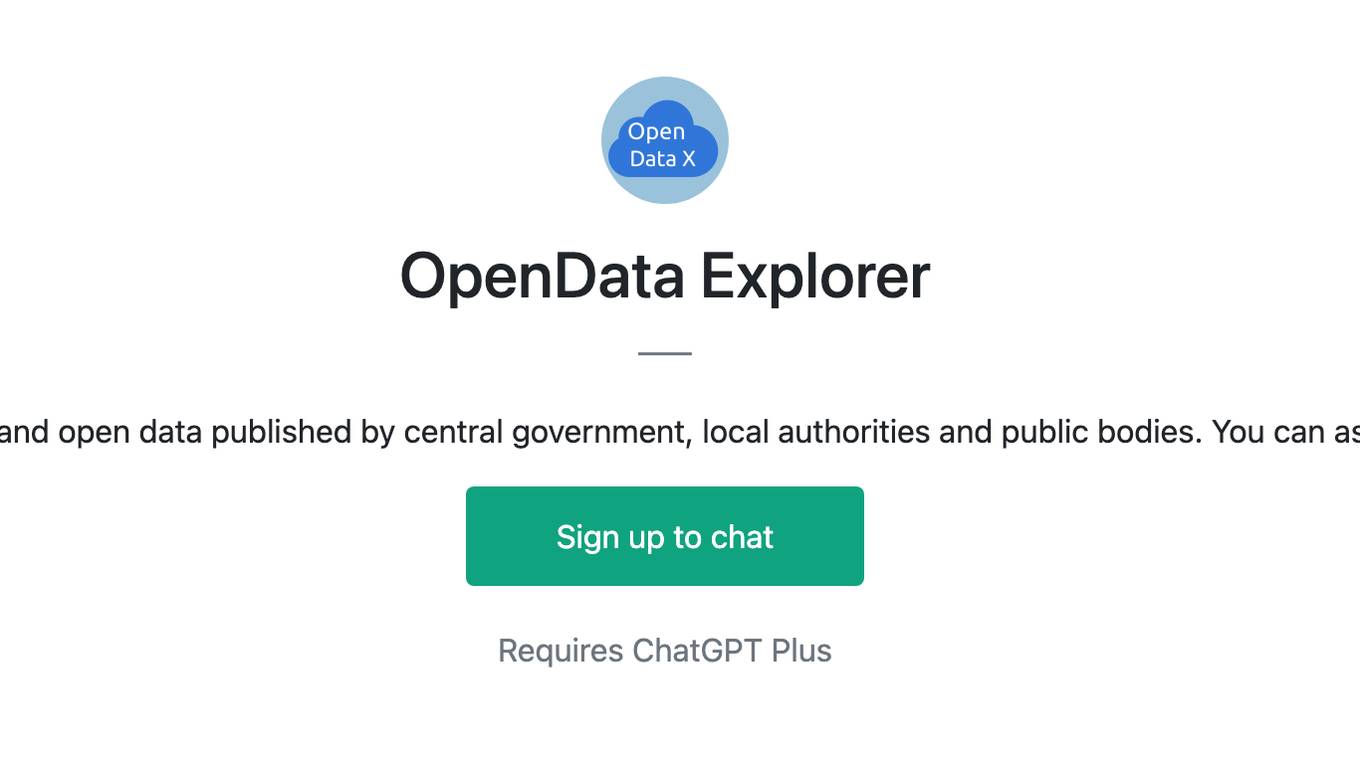
OpenData Explorer
I'll help you access and understand open data published by central government, local authorities and public bodies. You can ask me in your native language.
